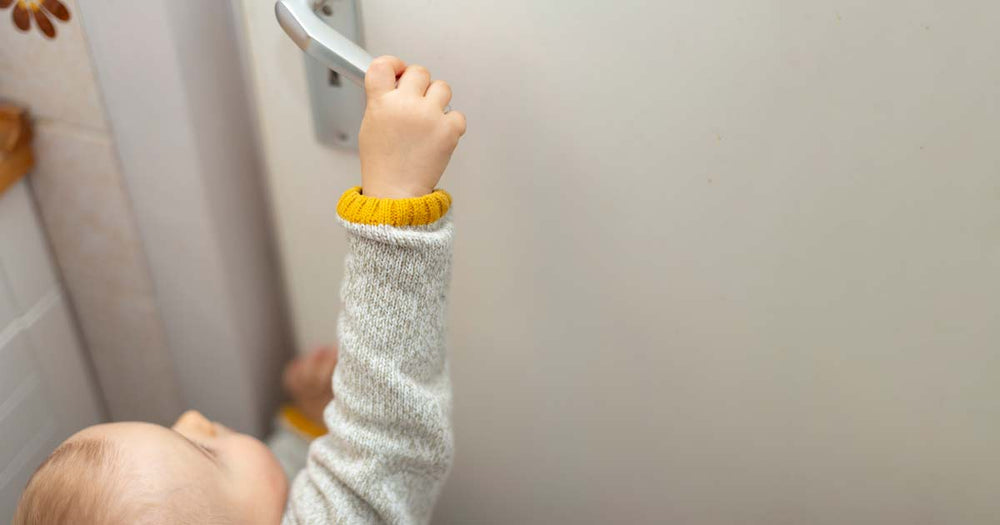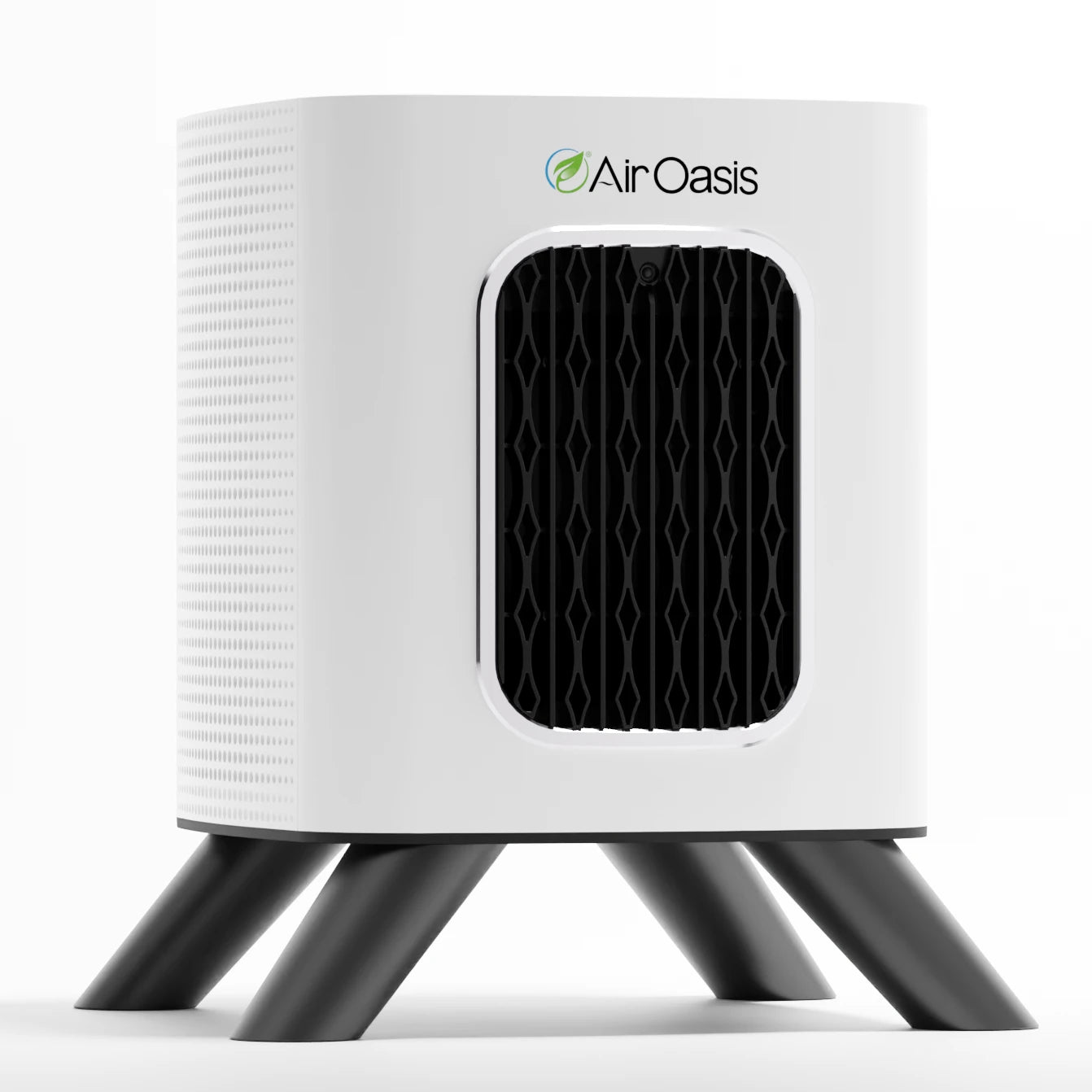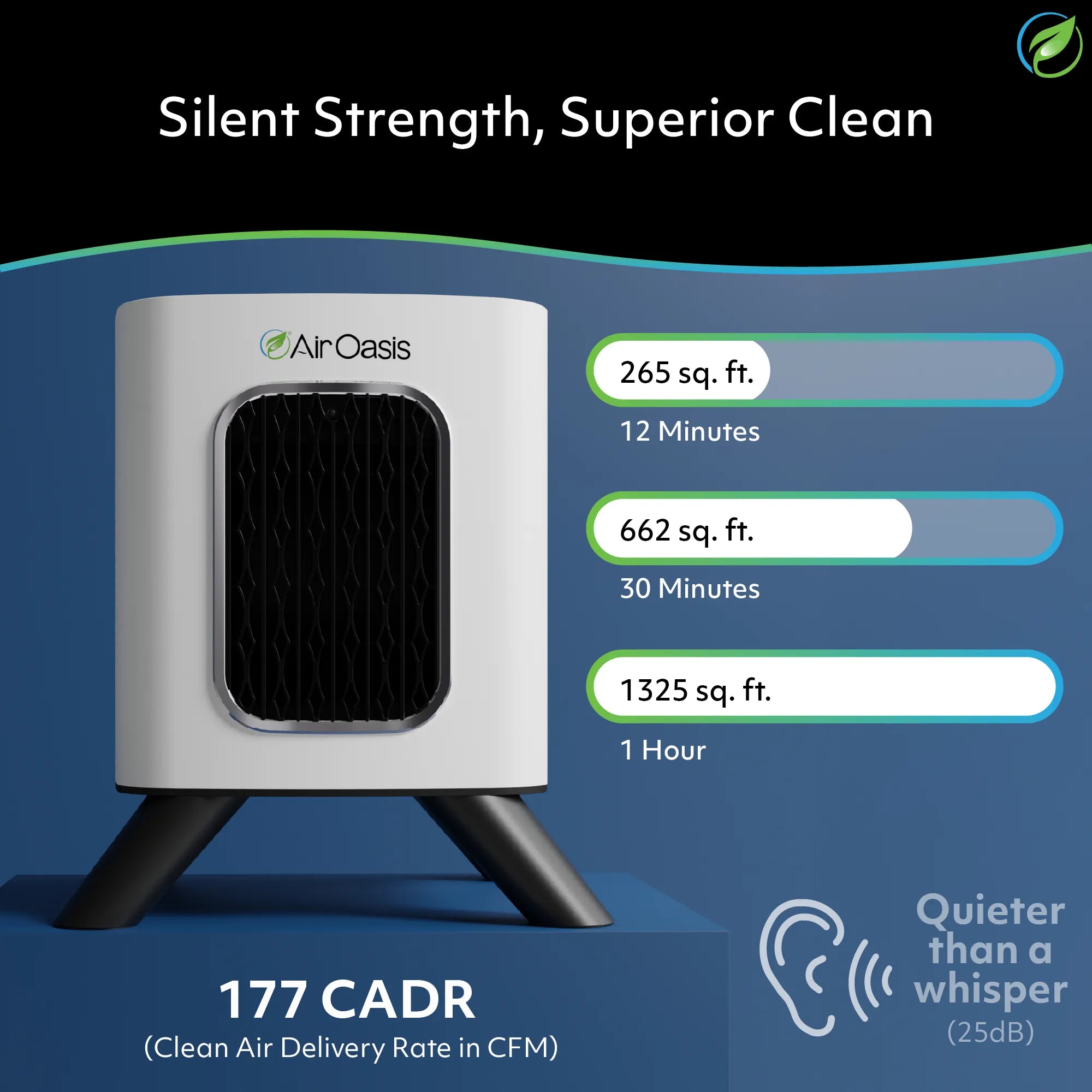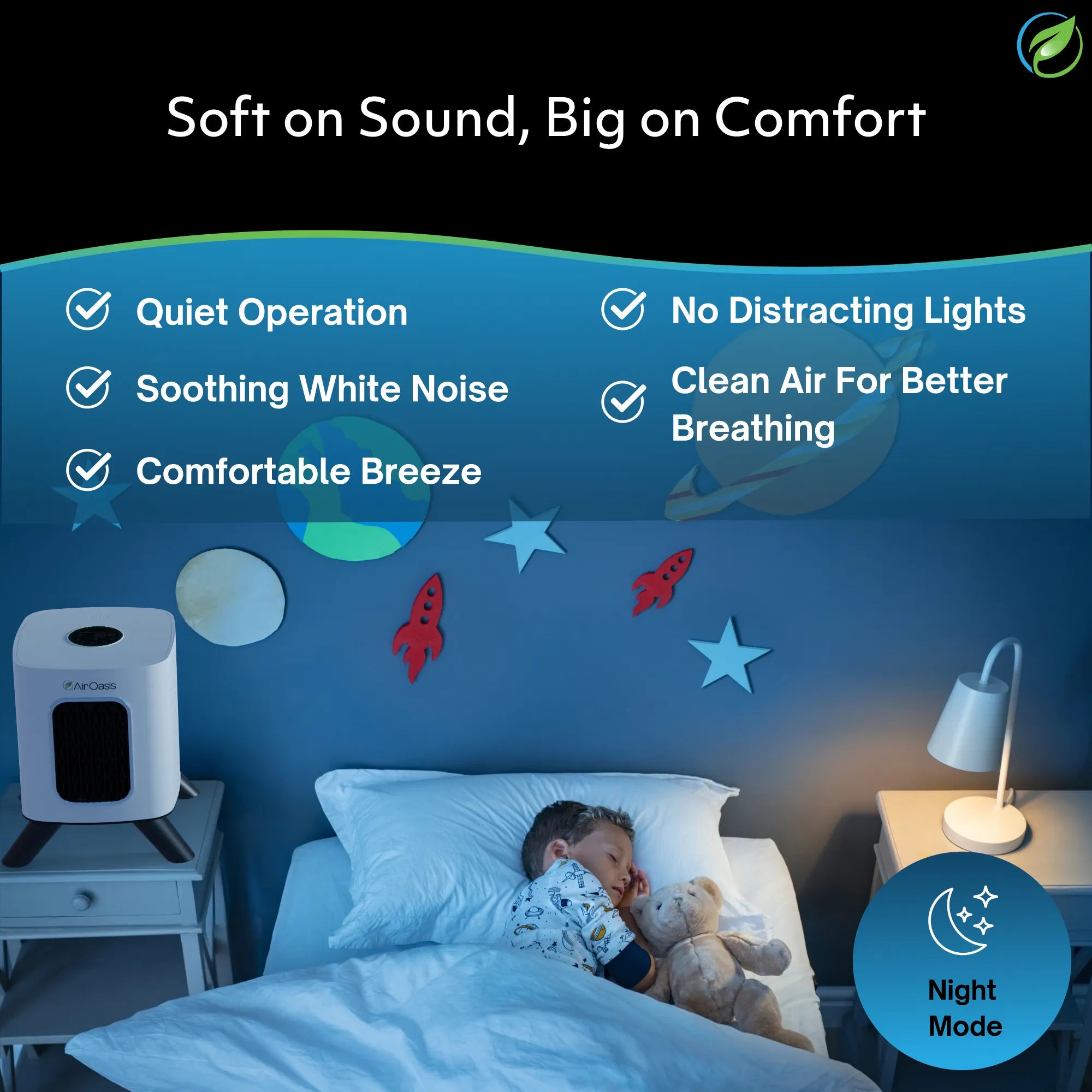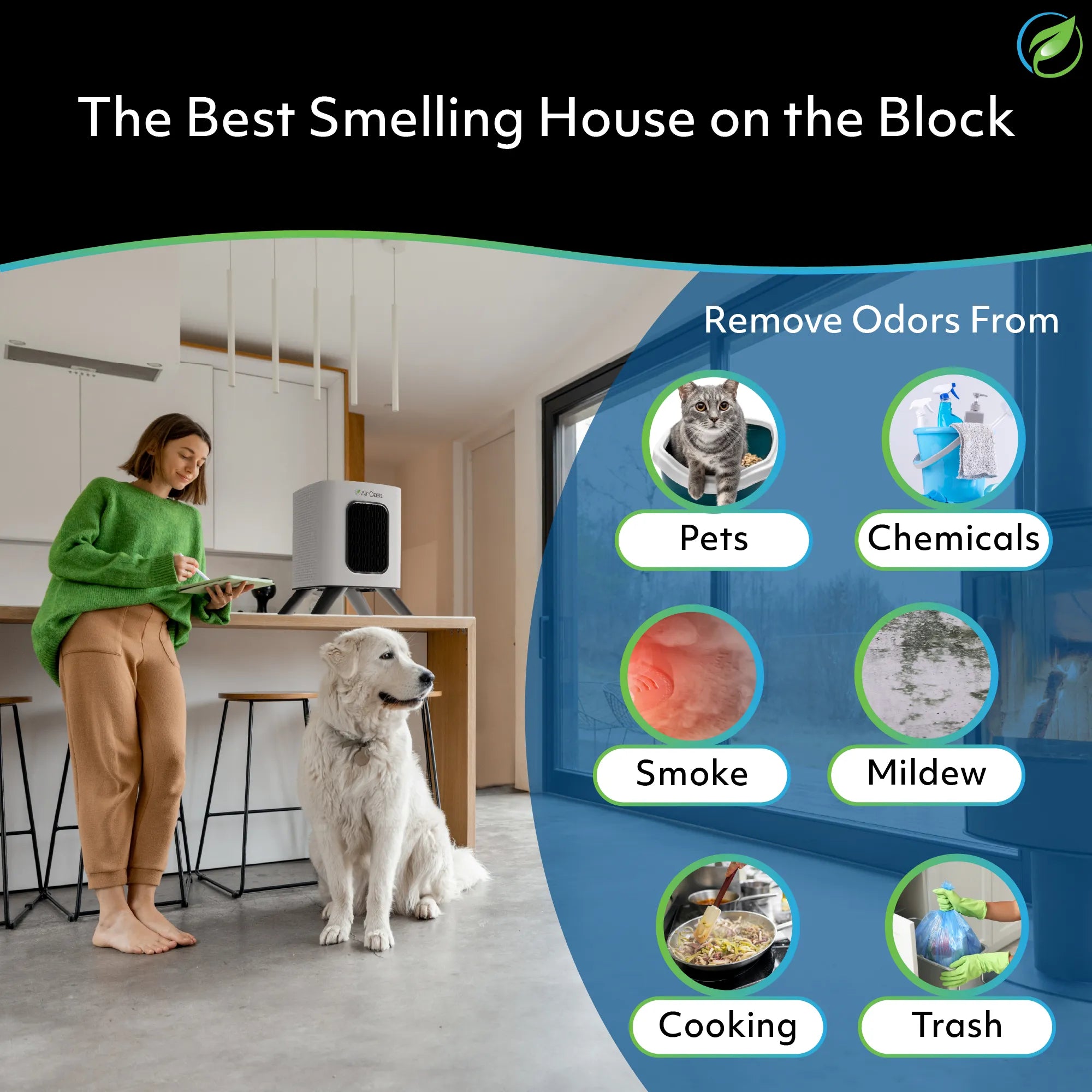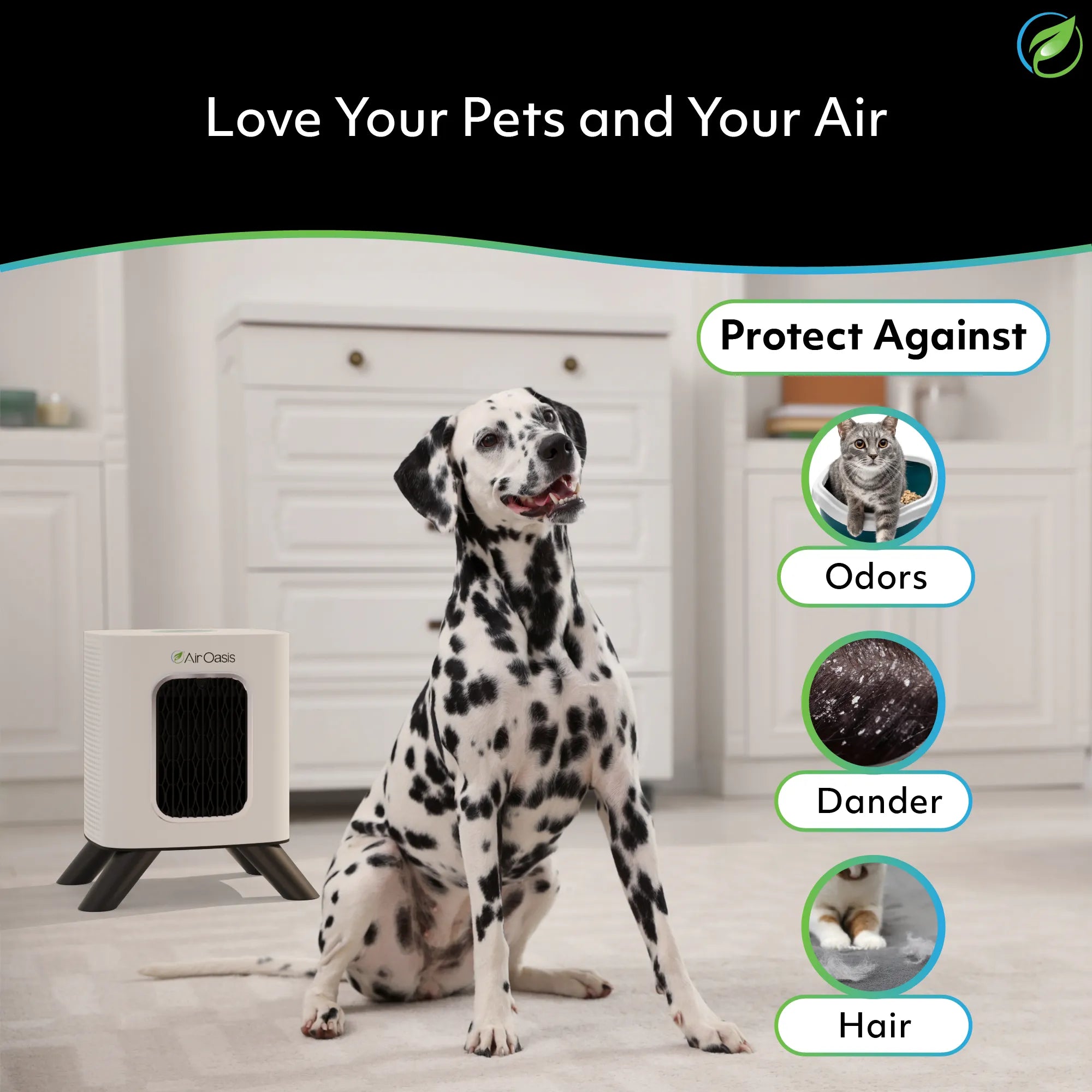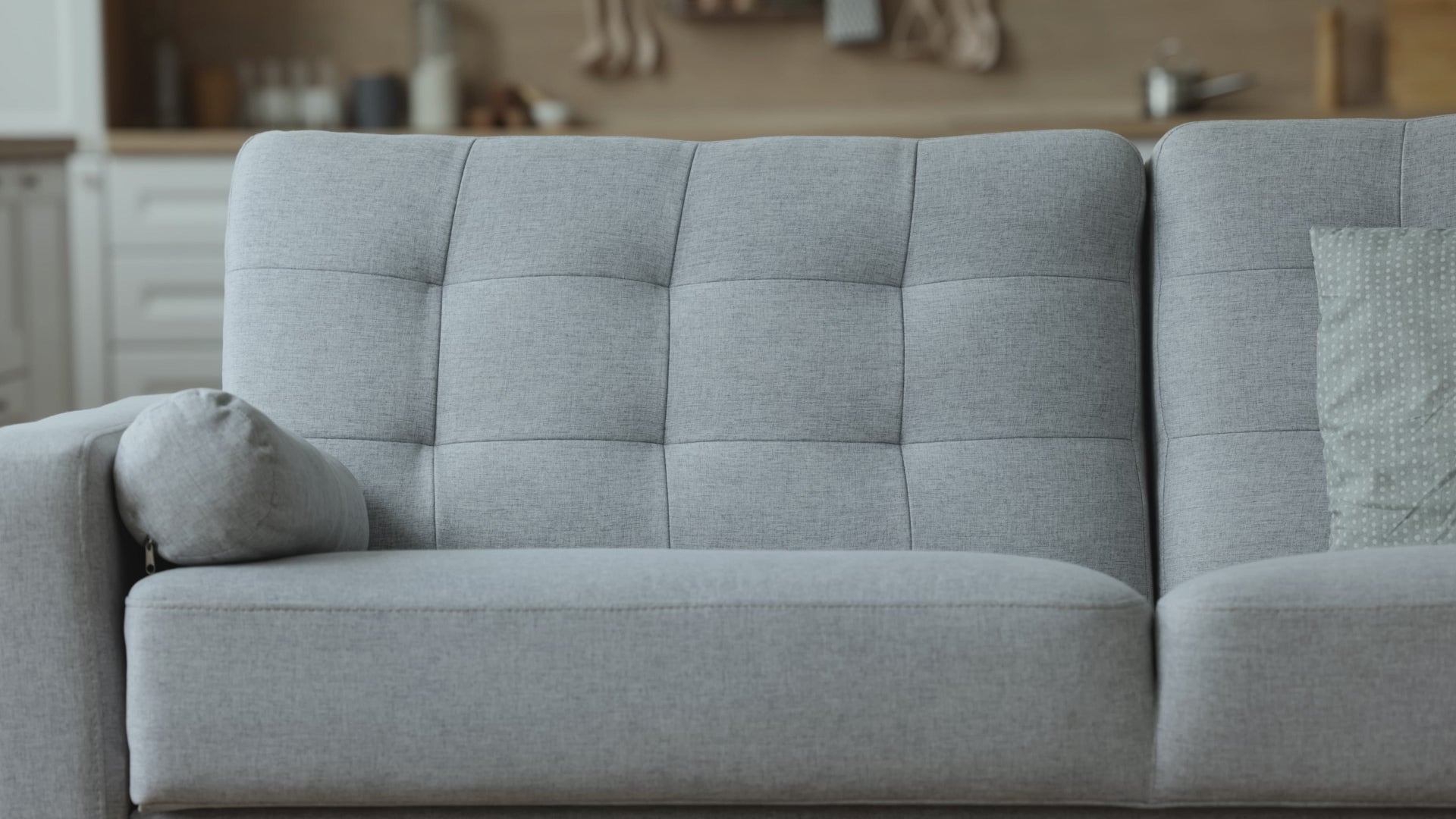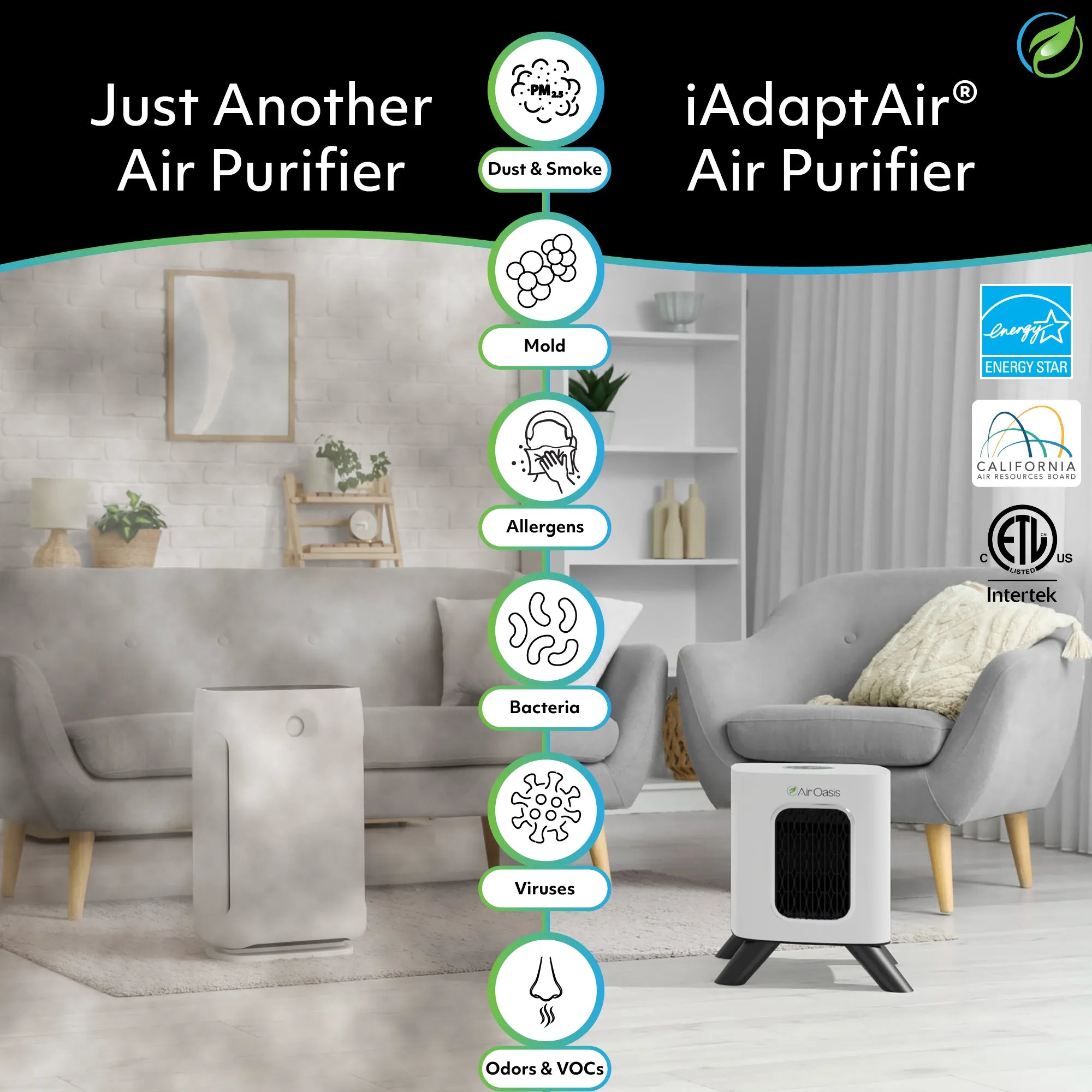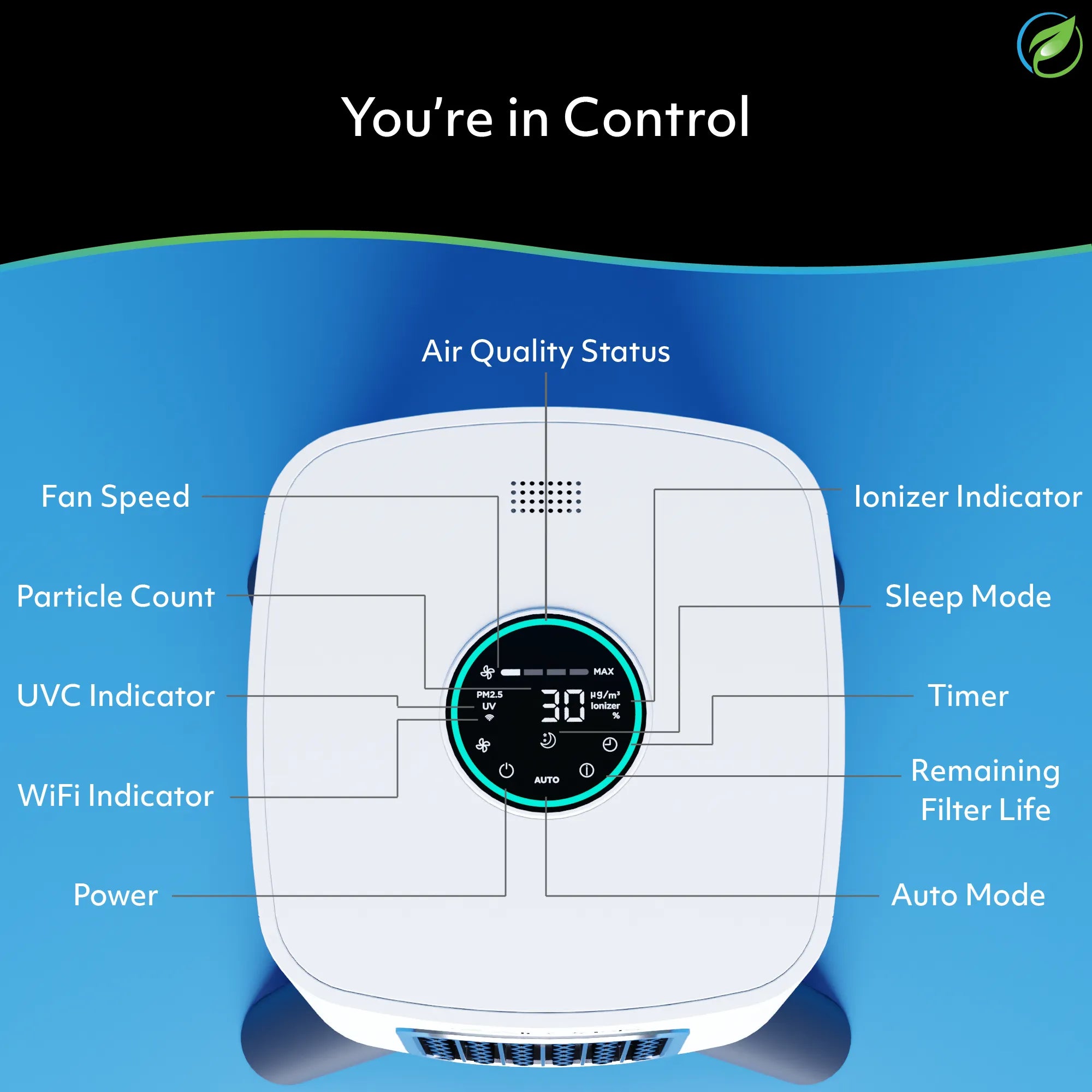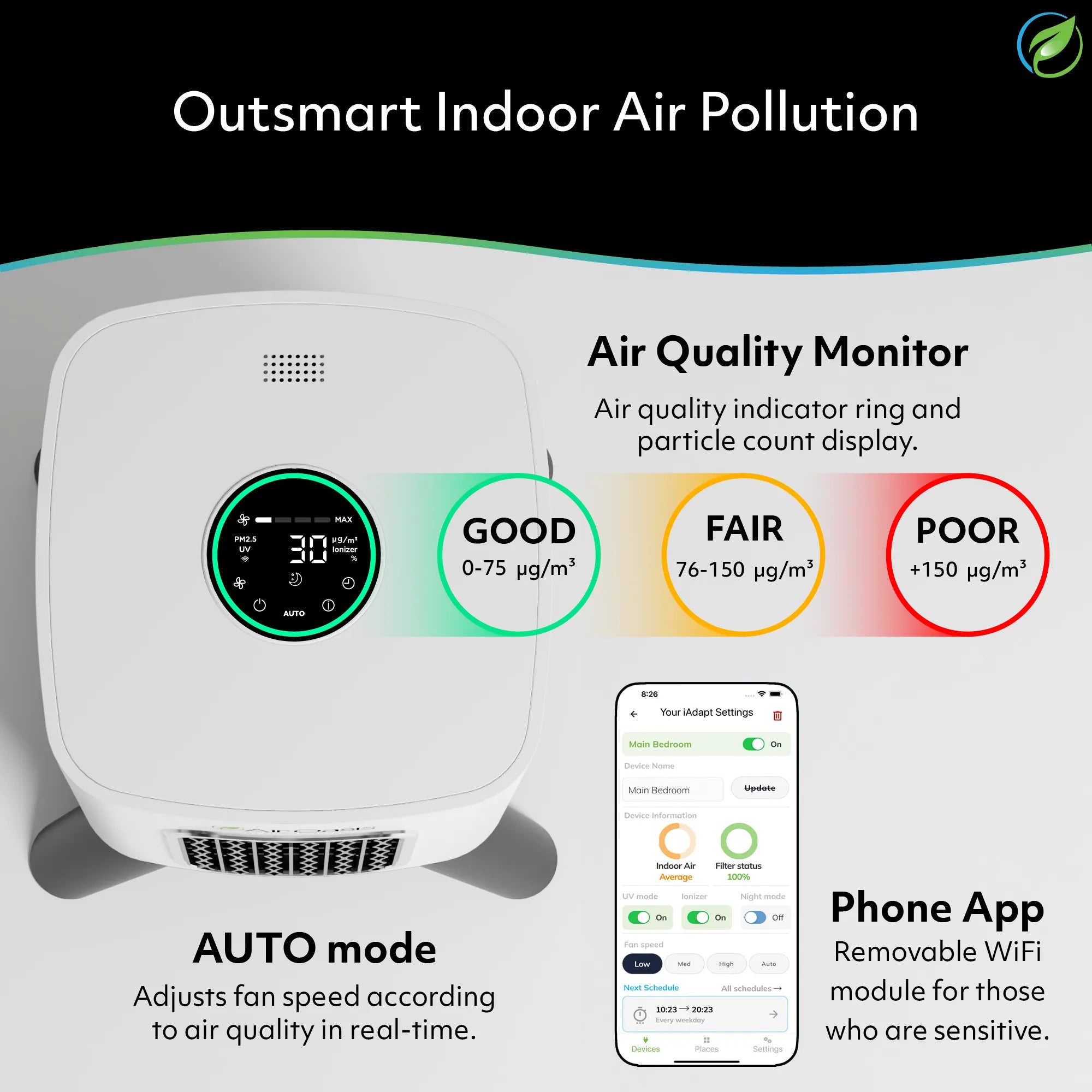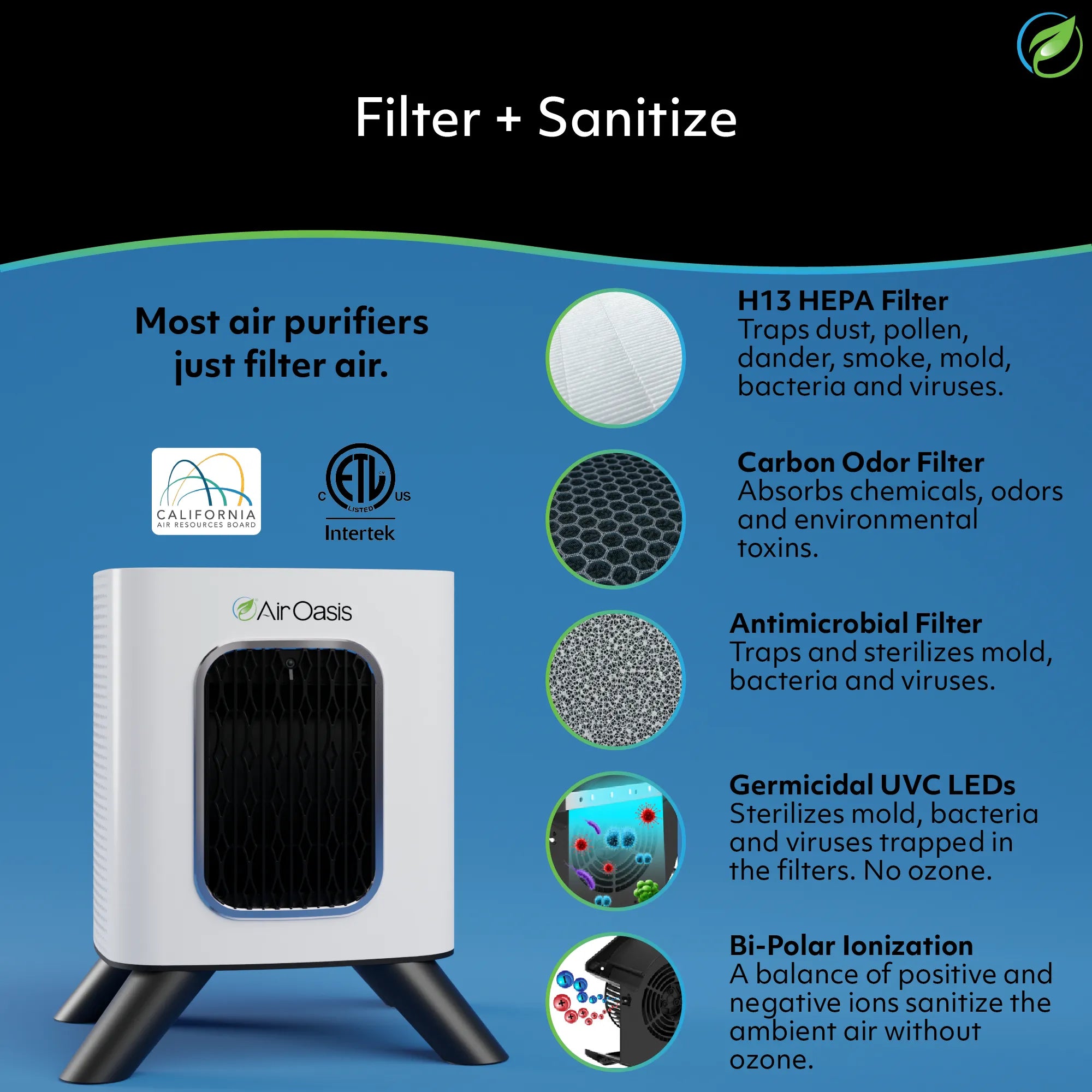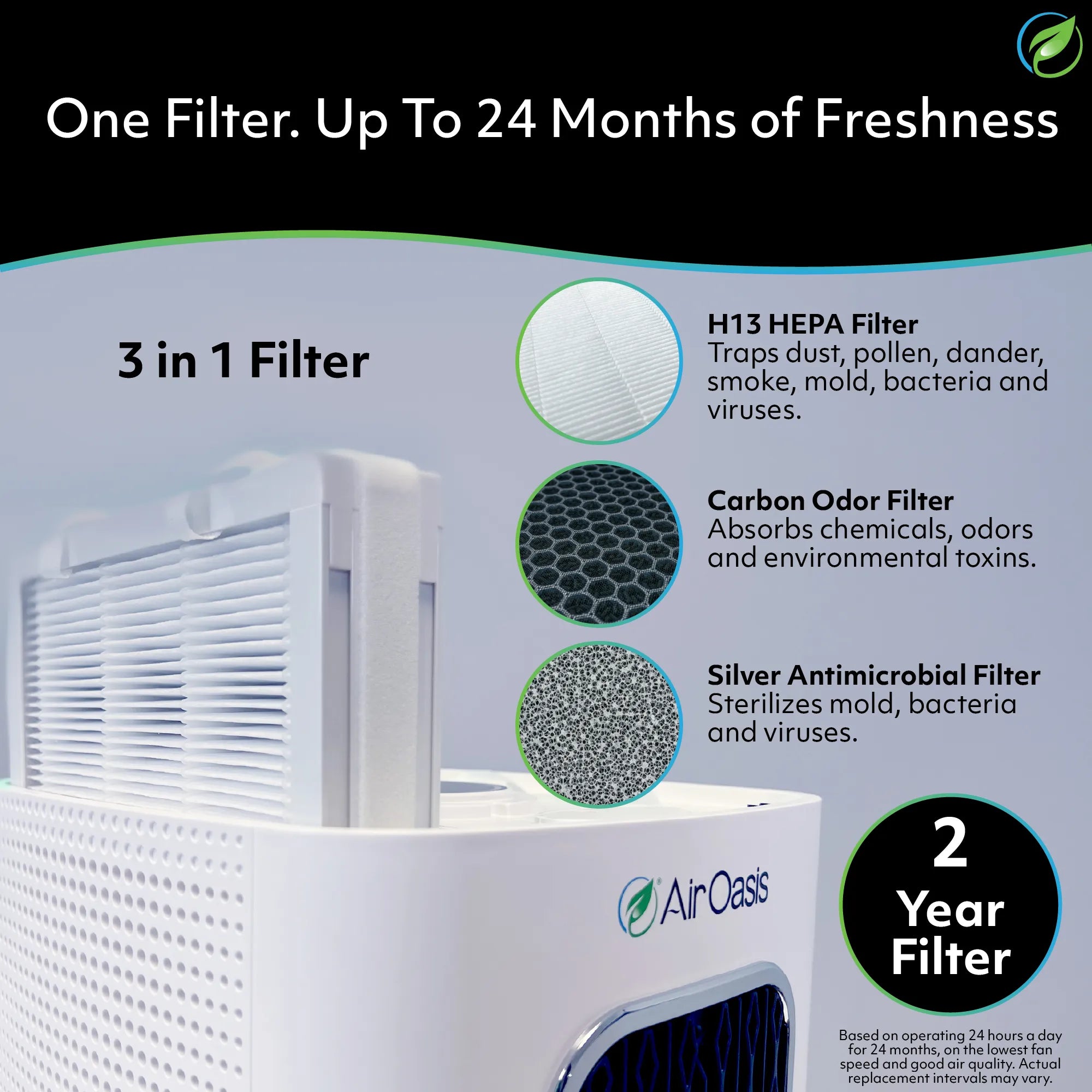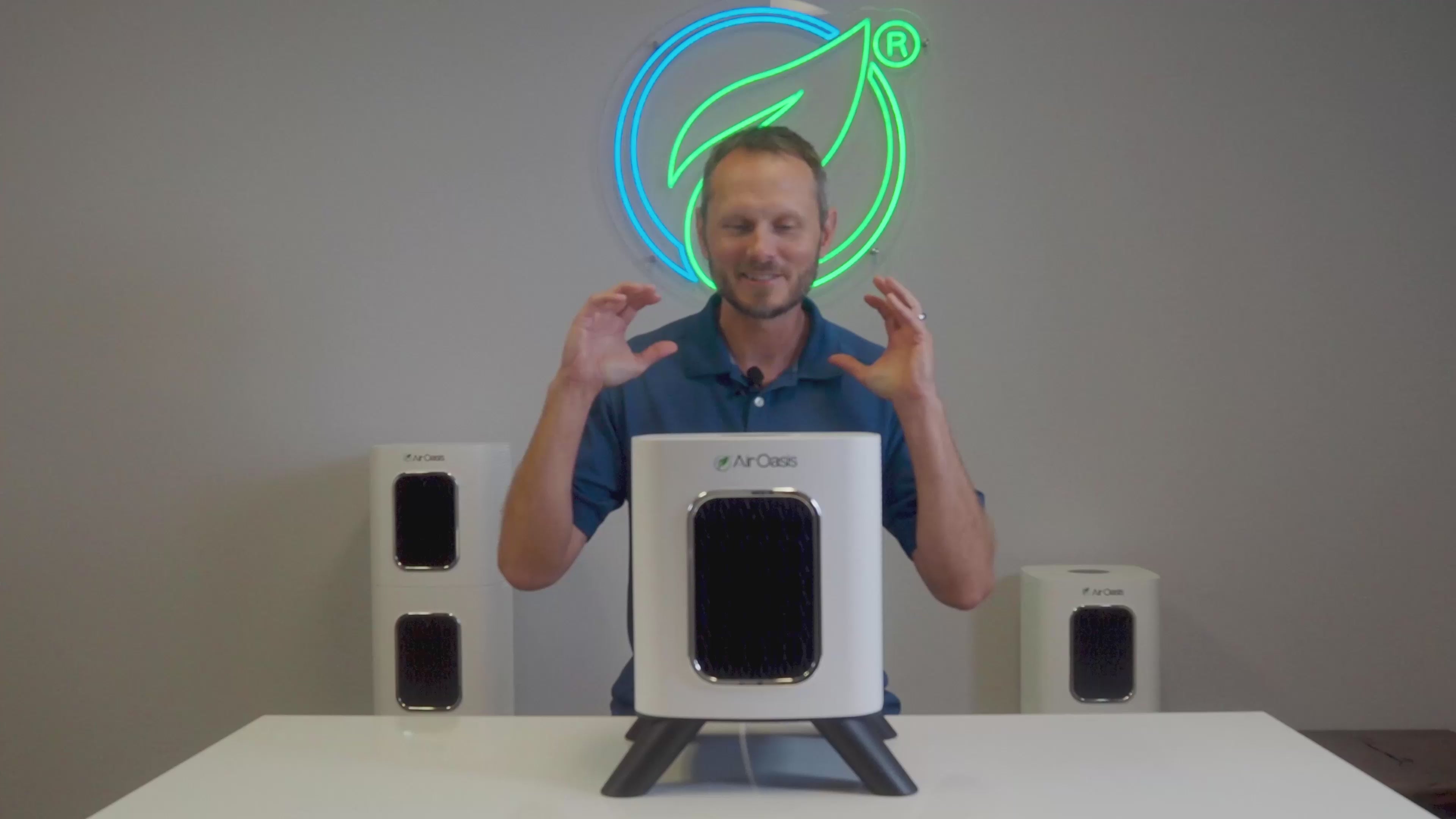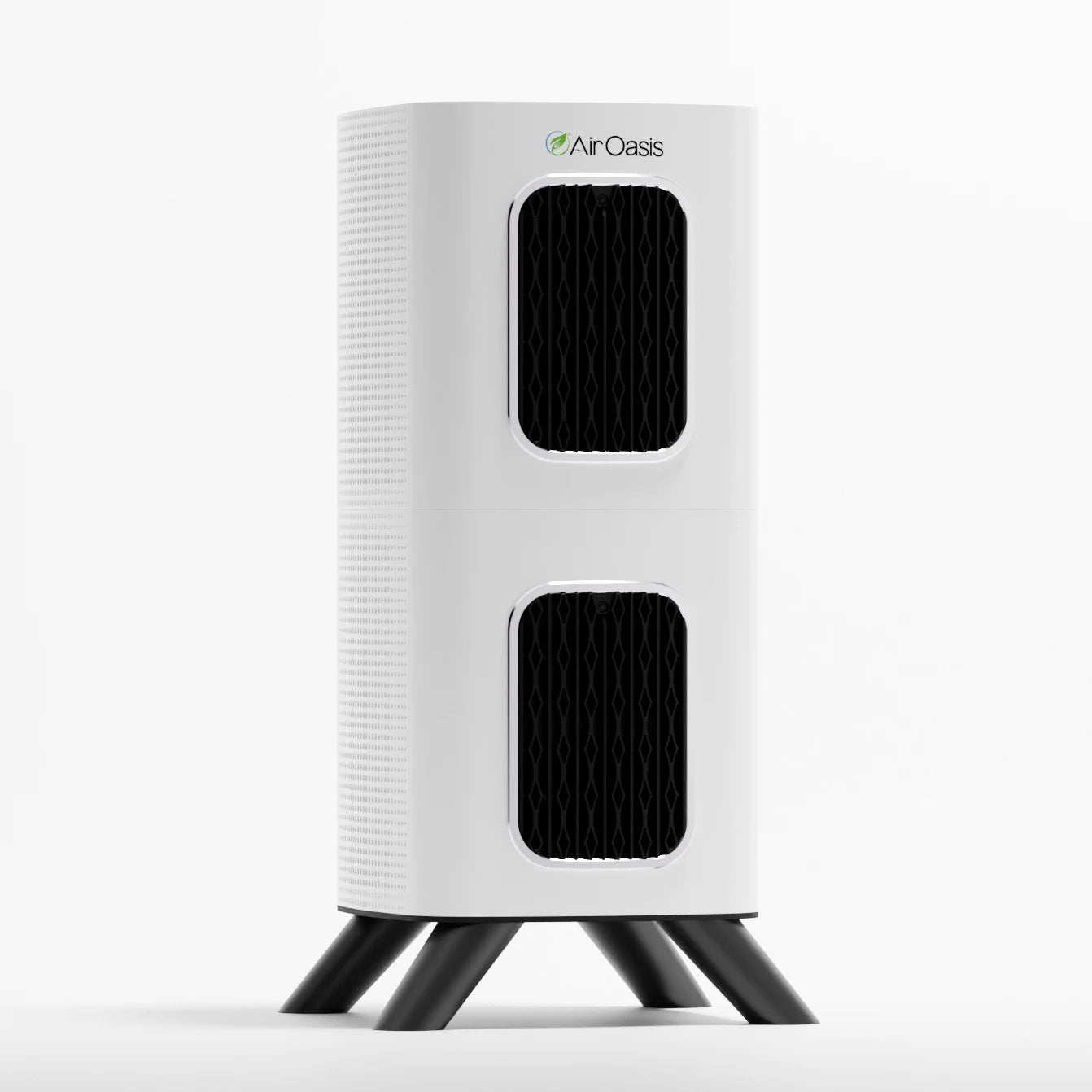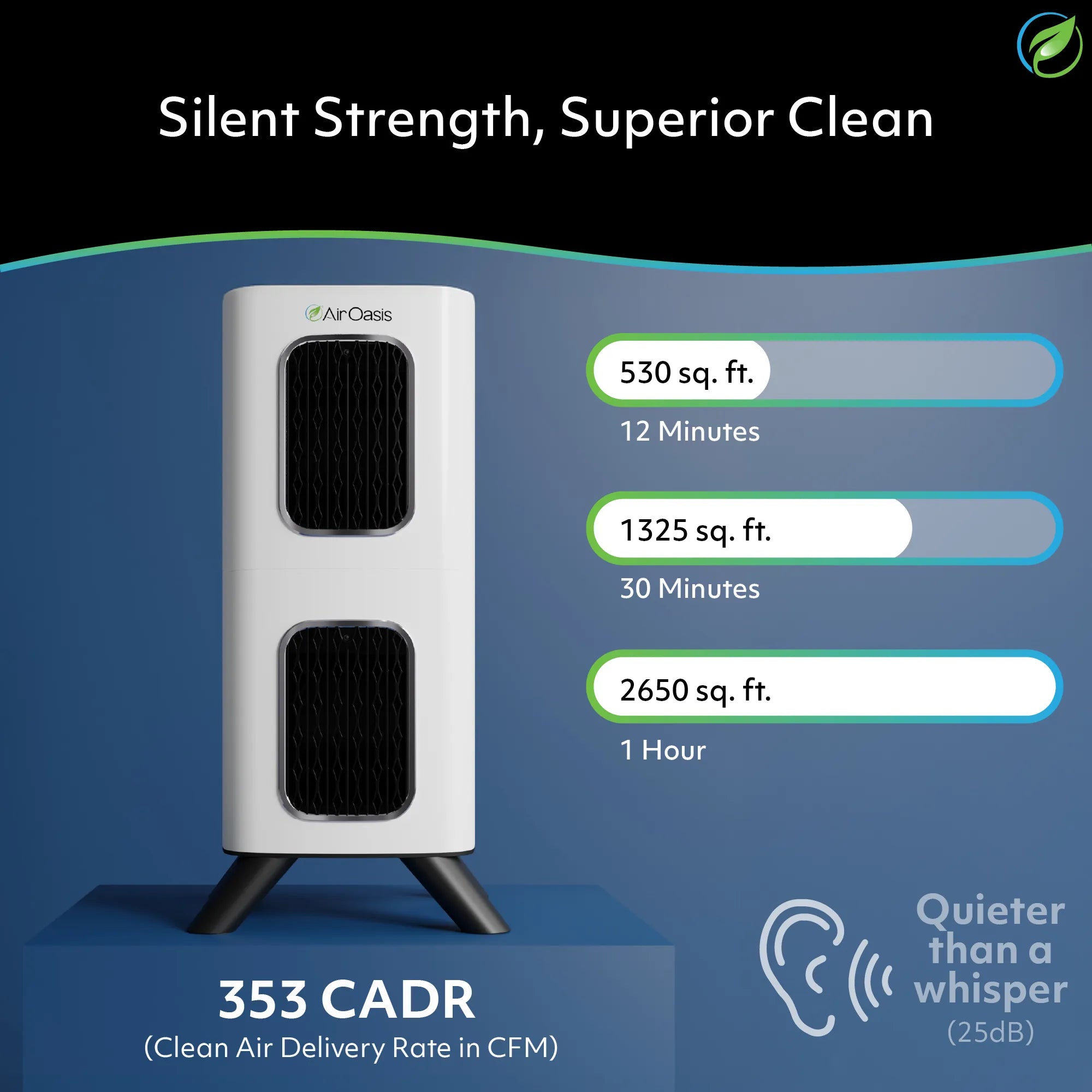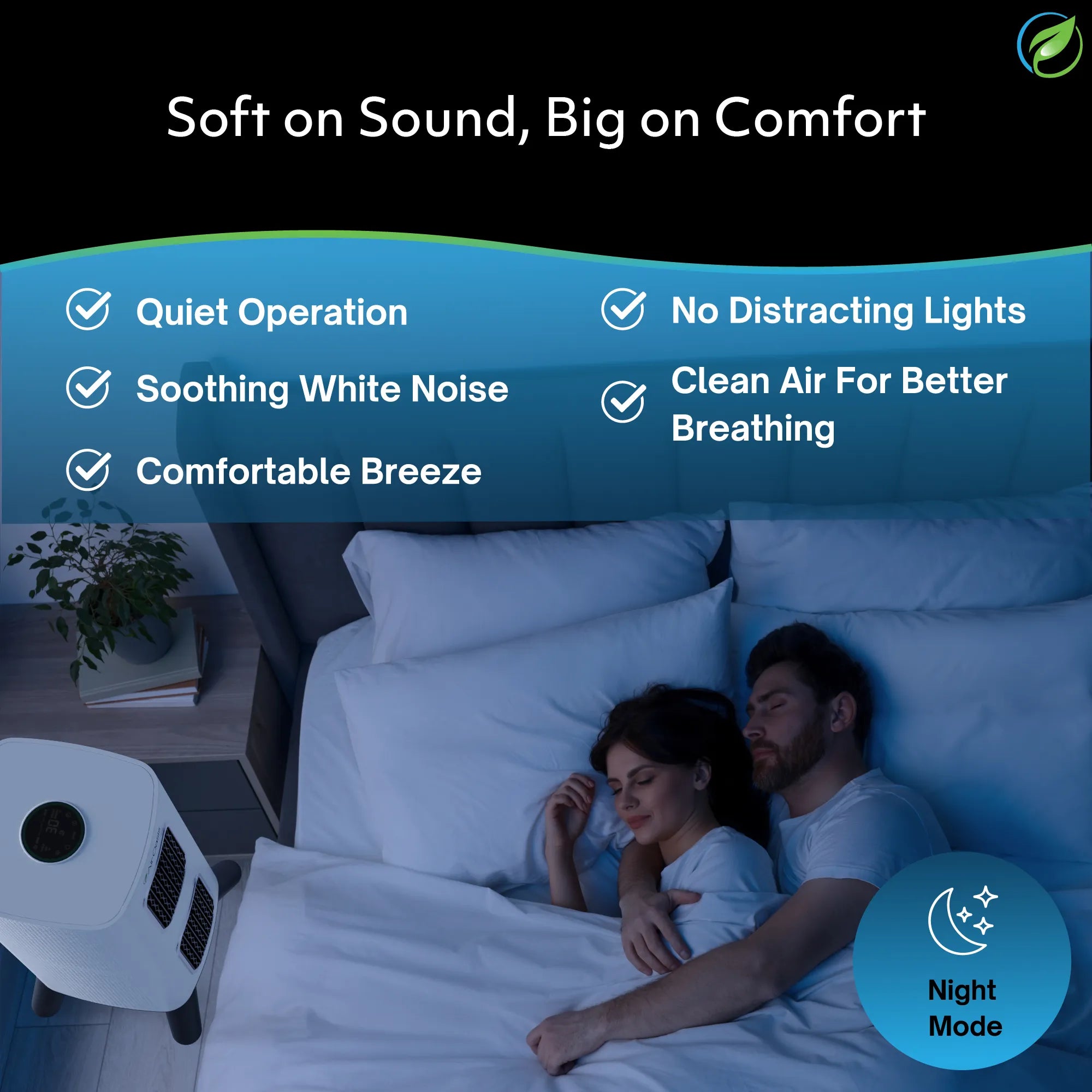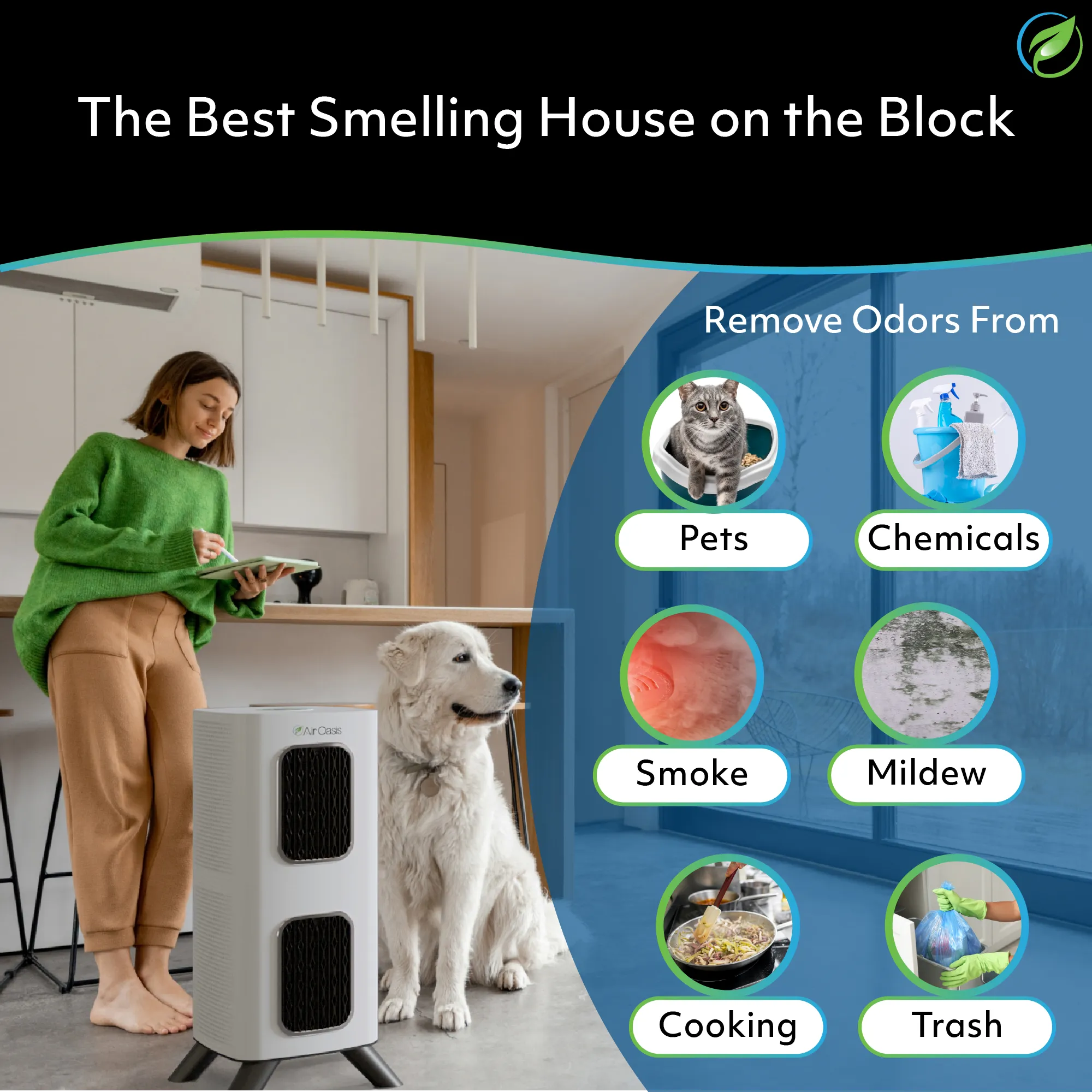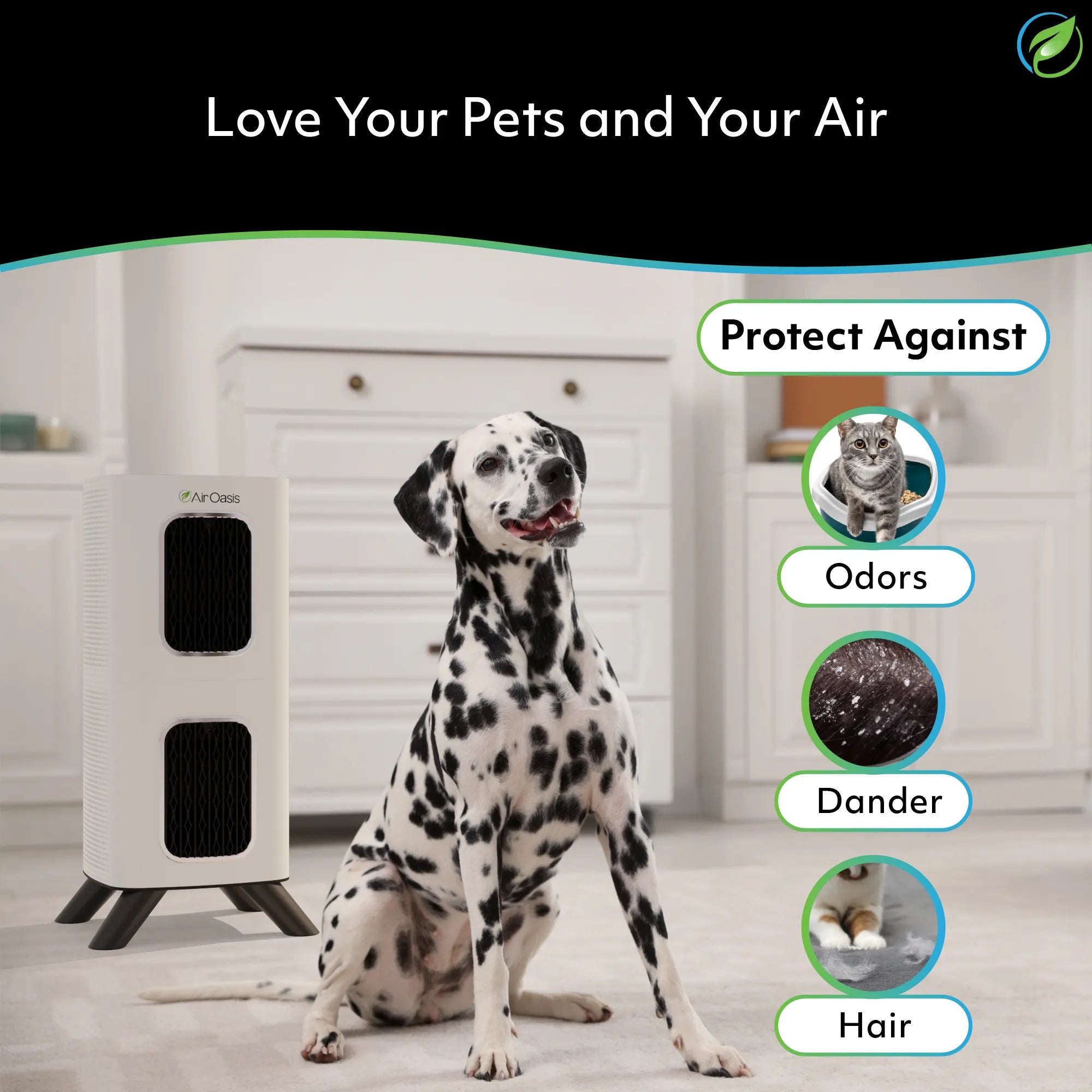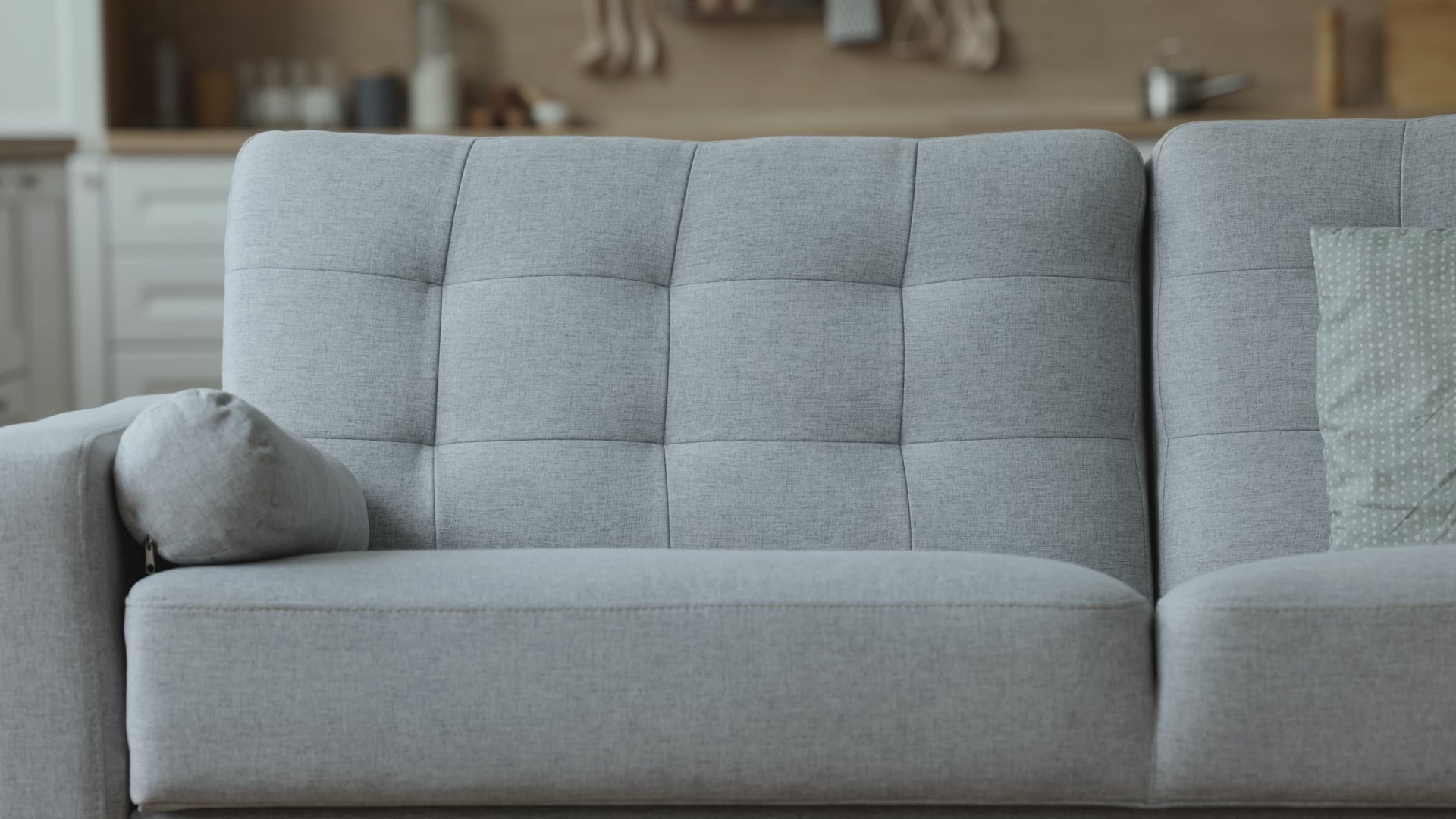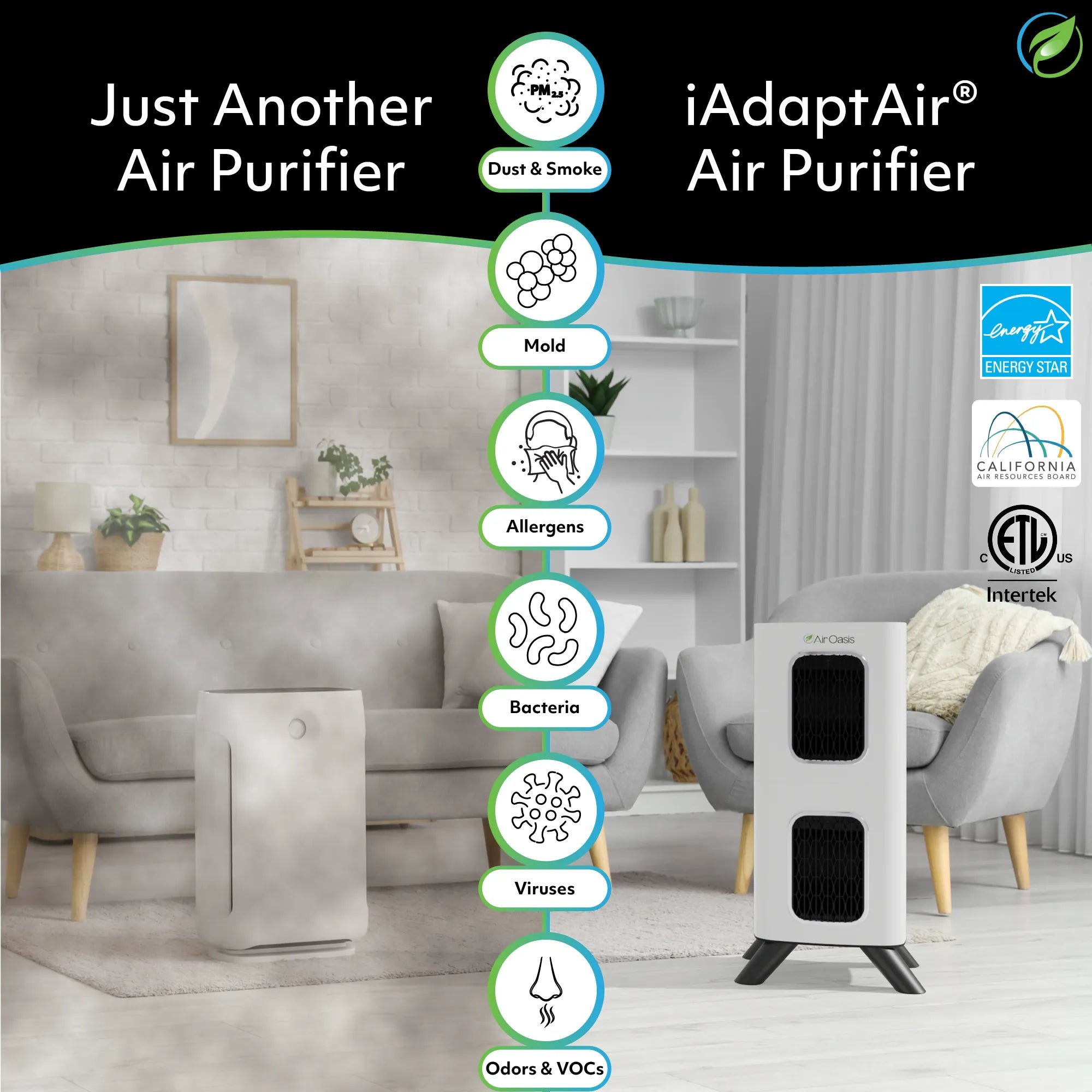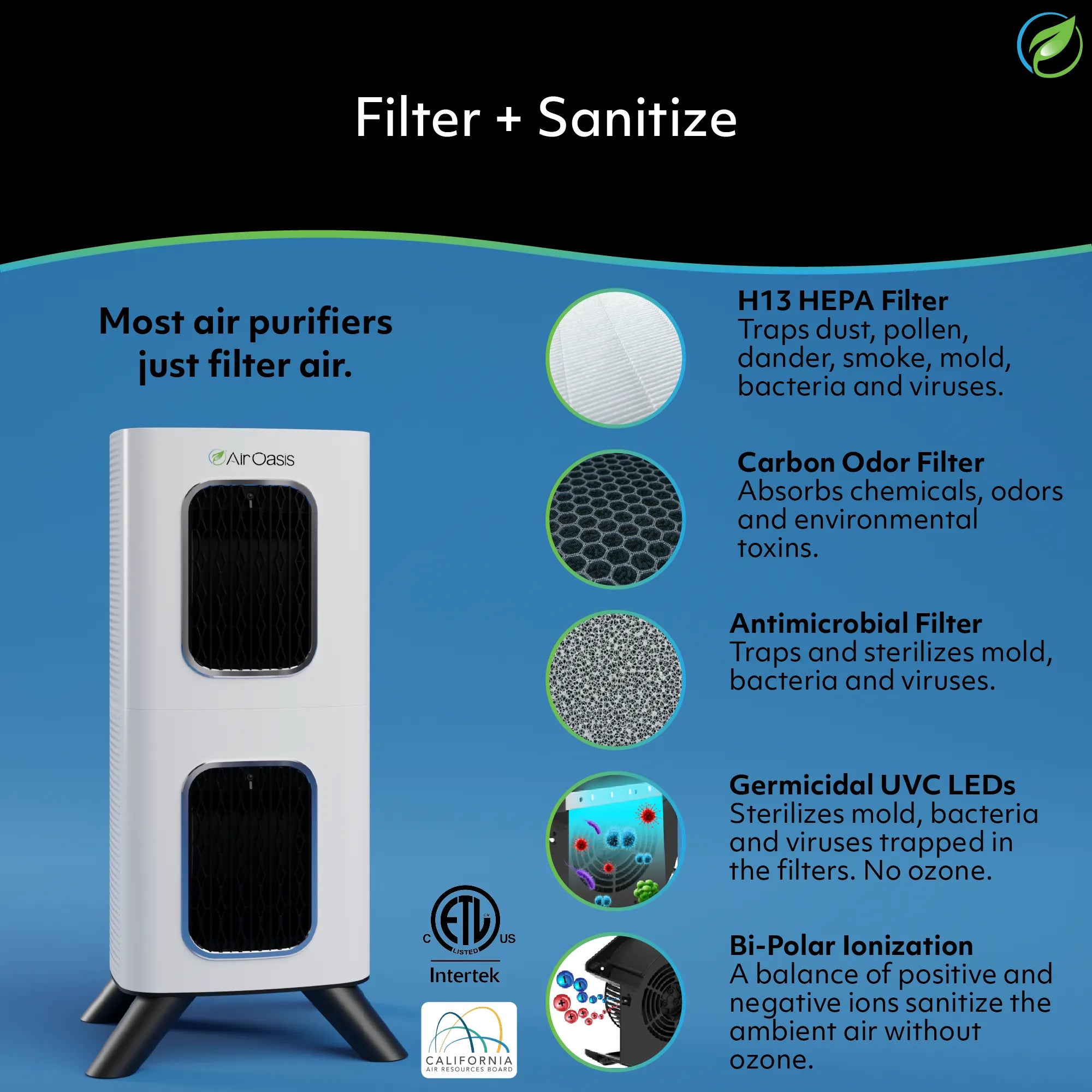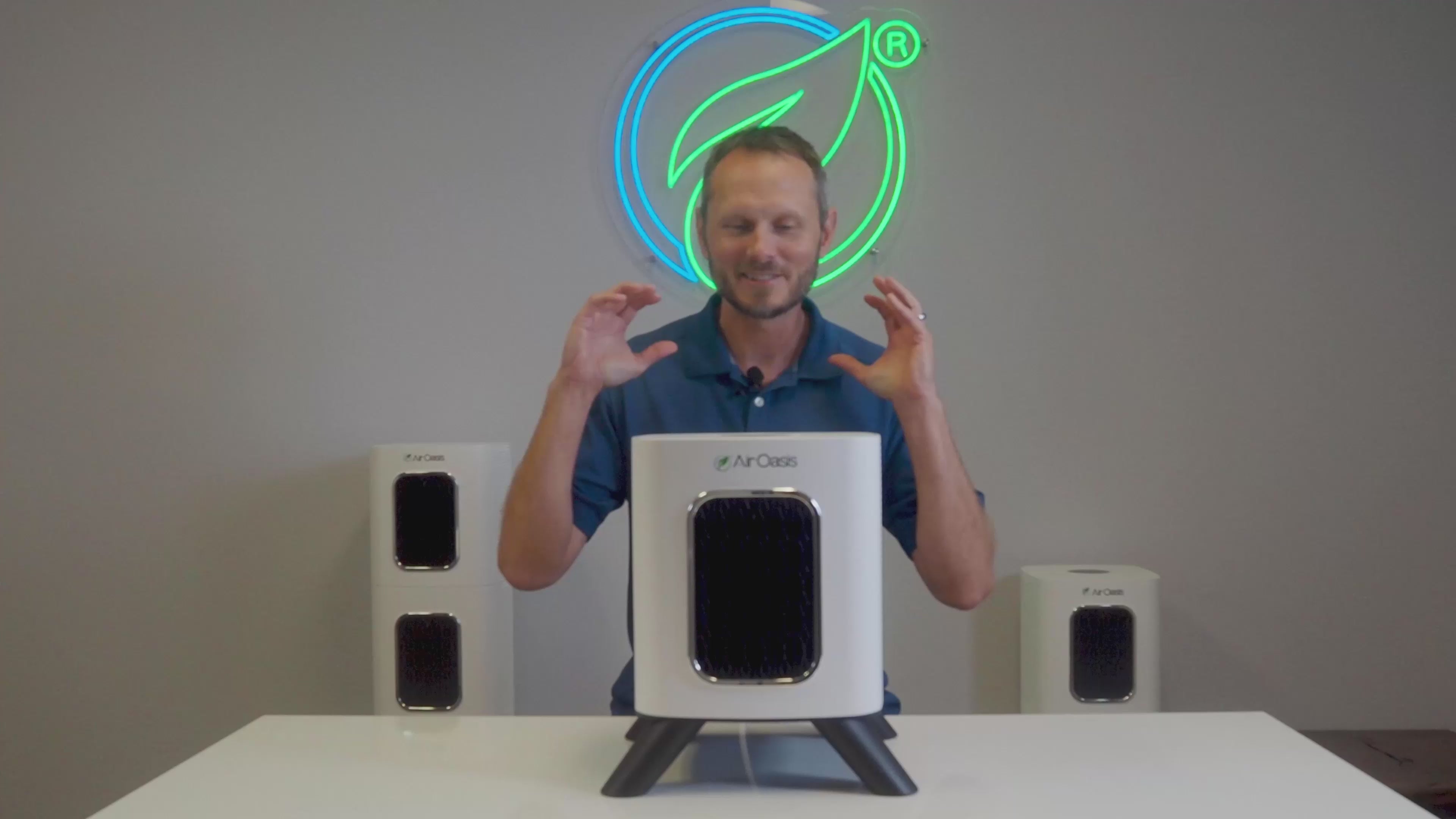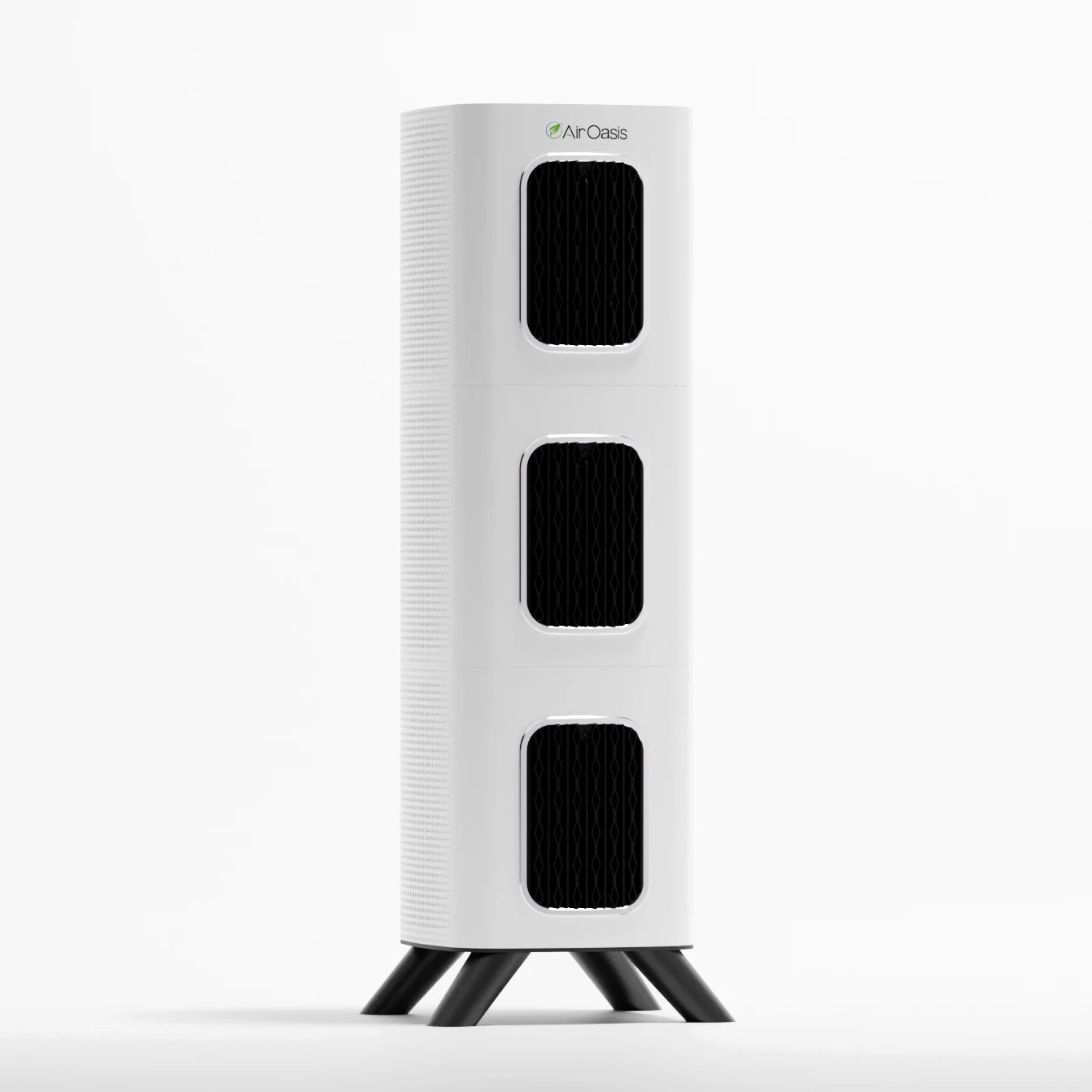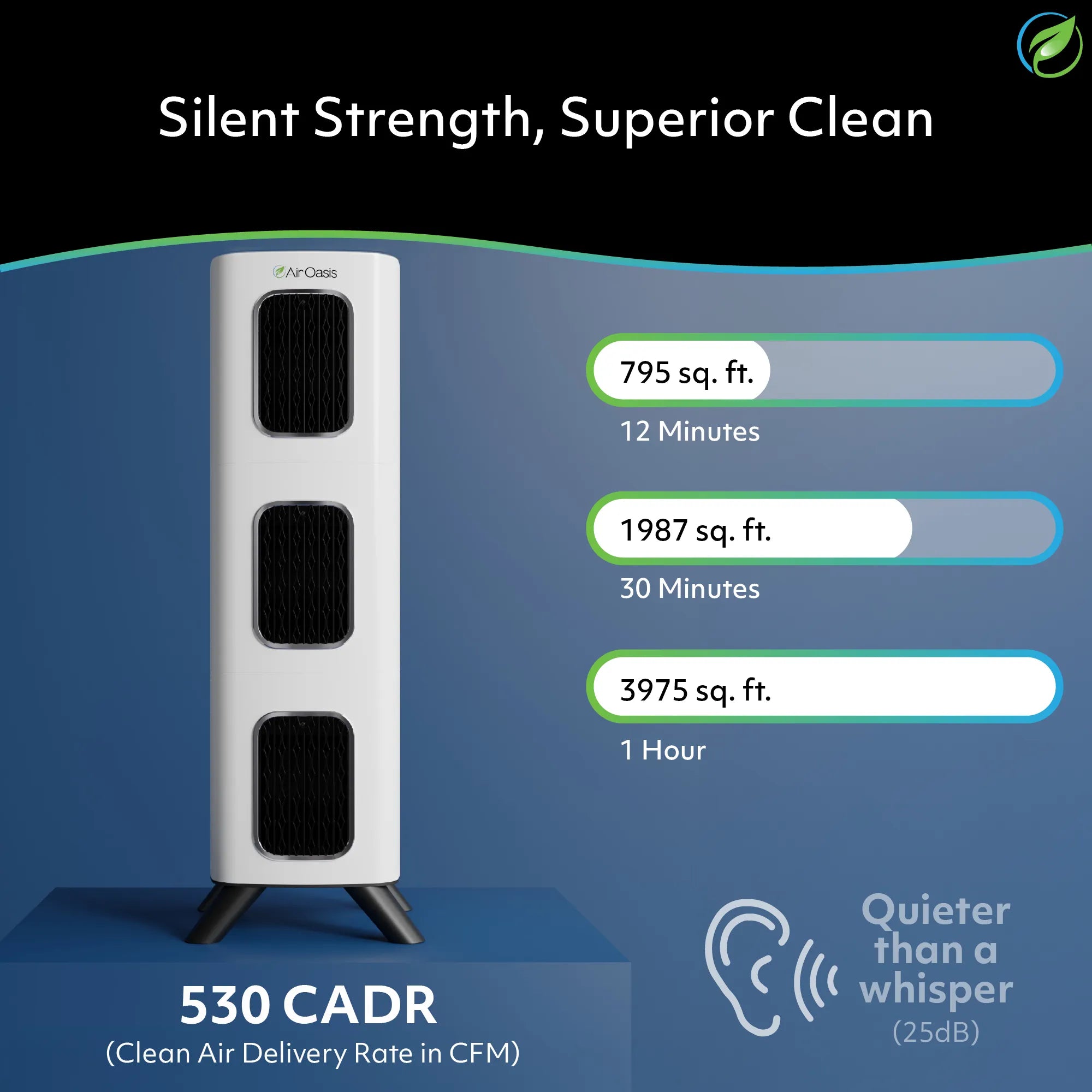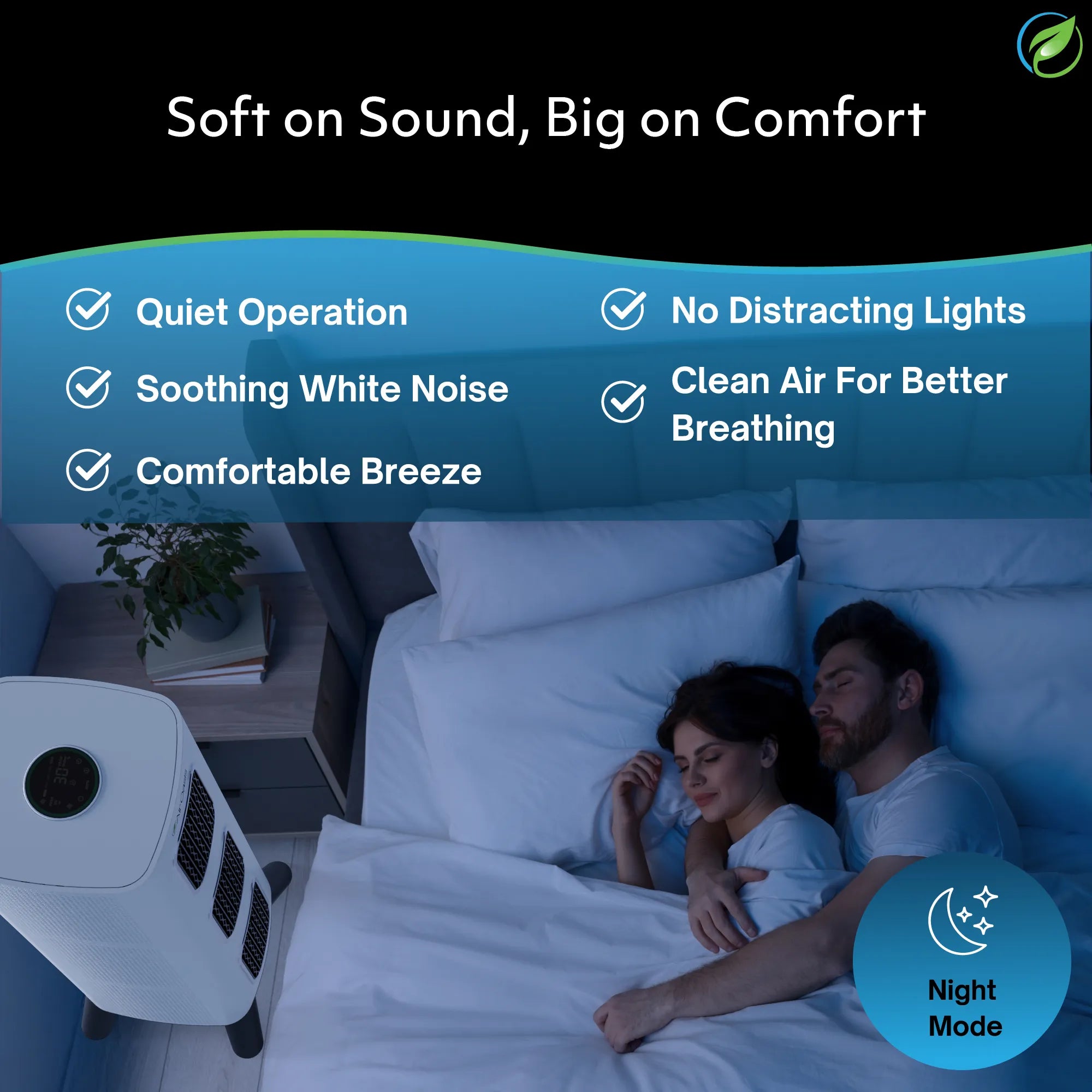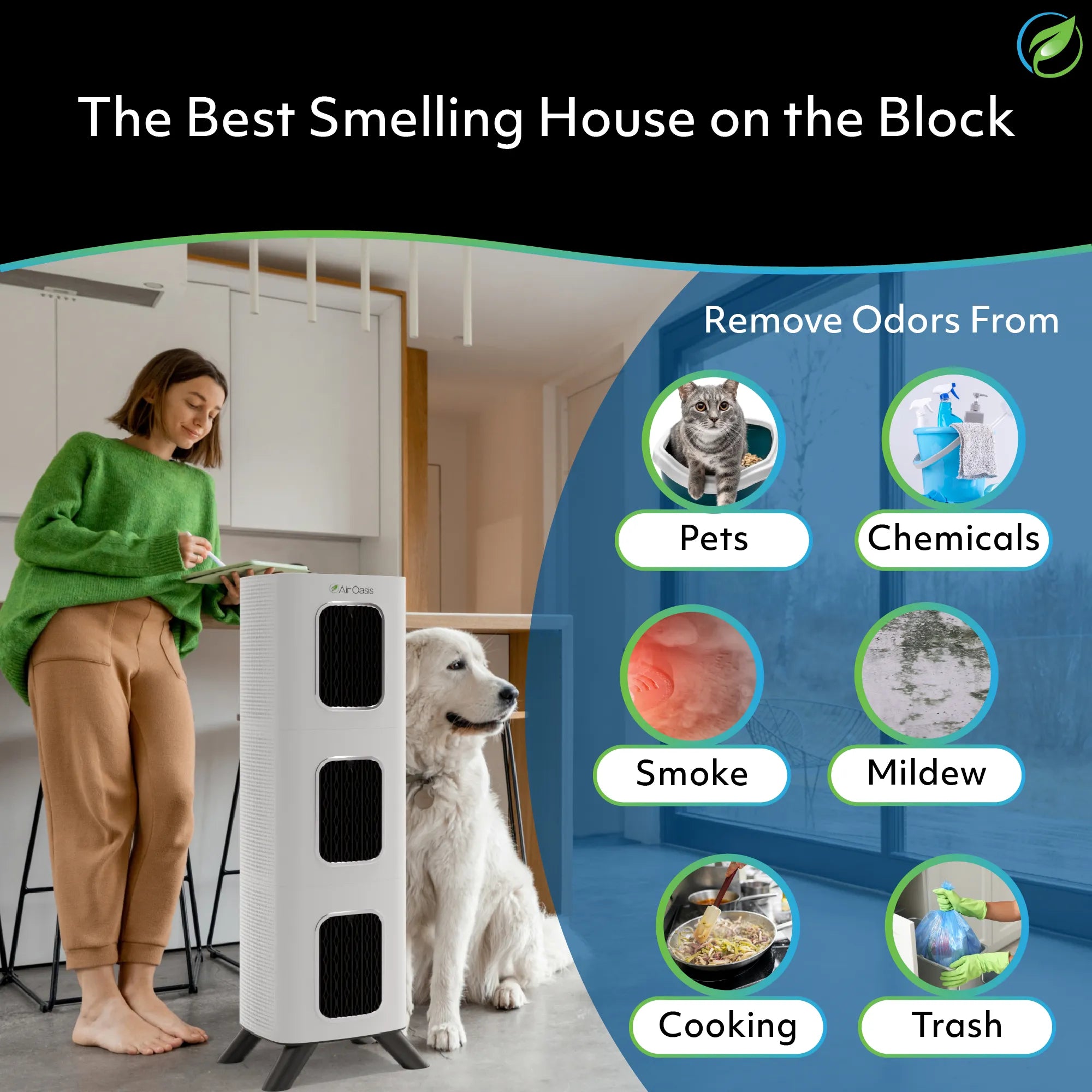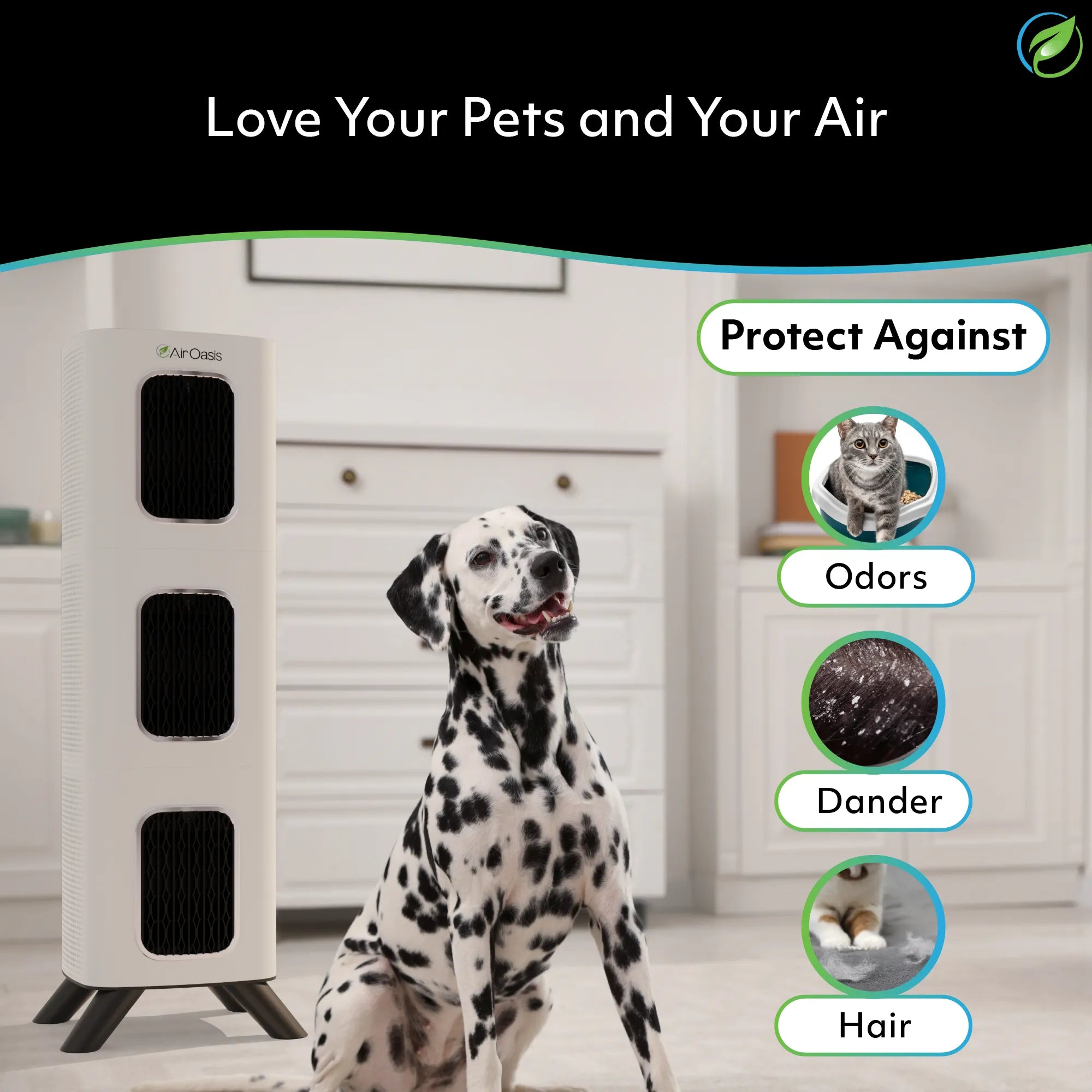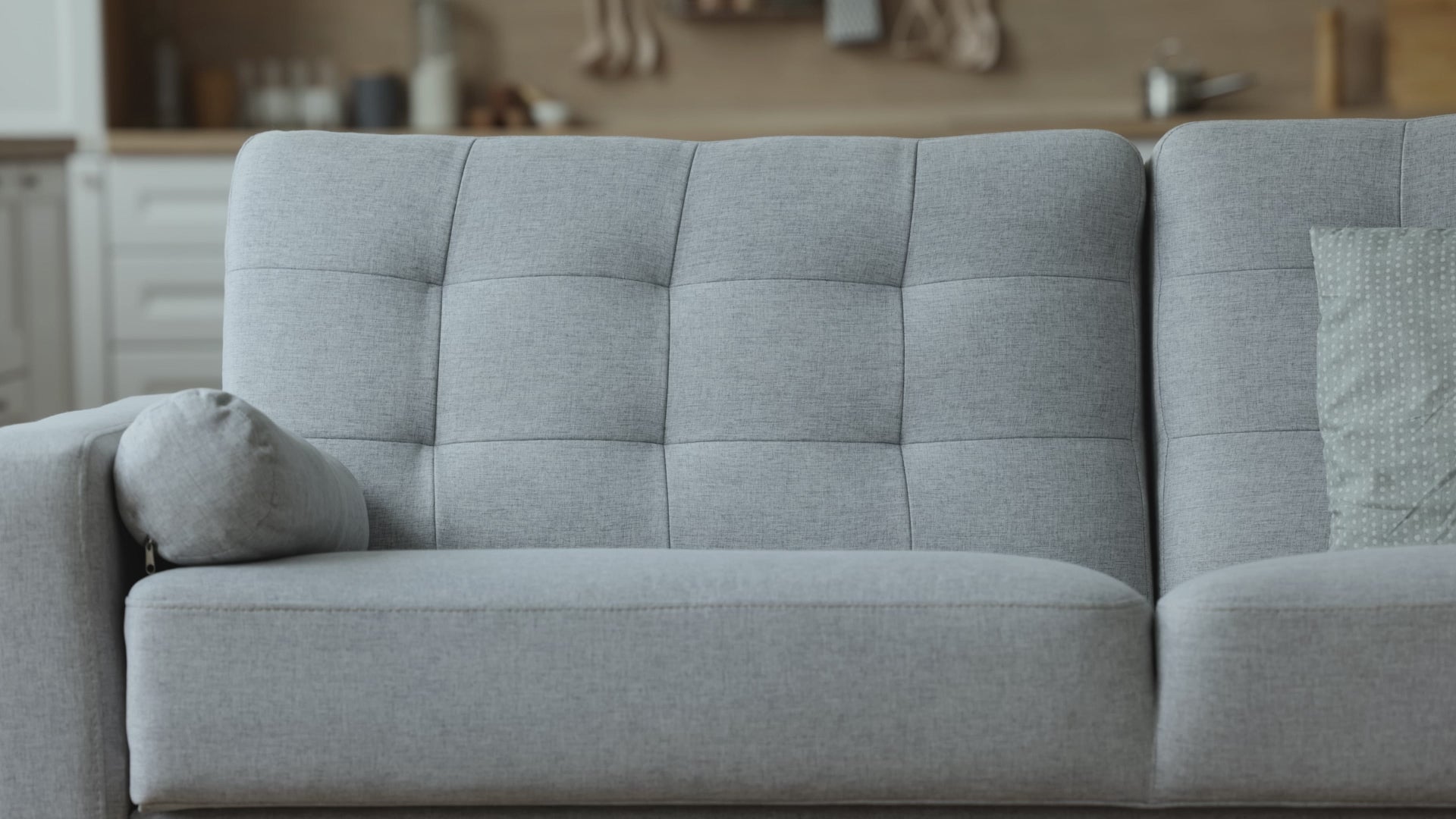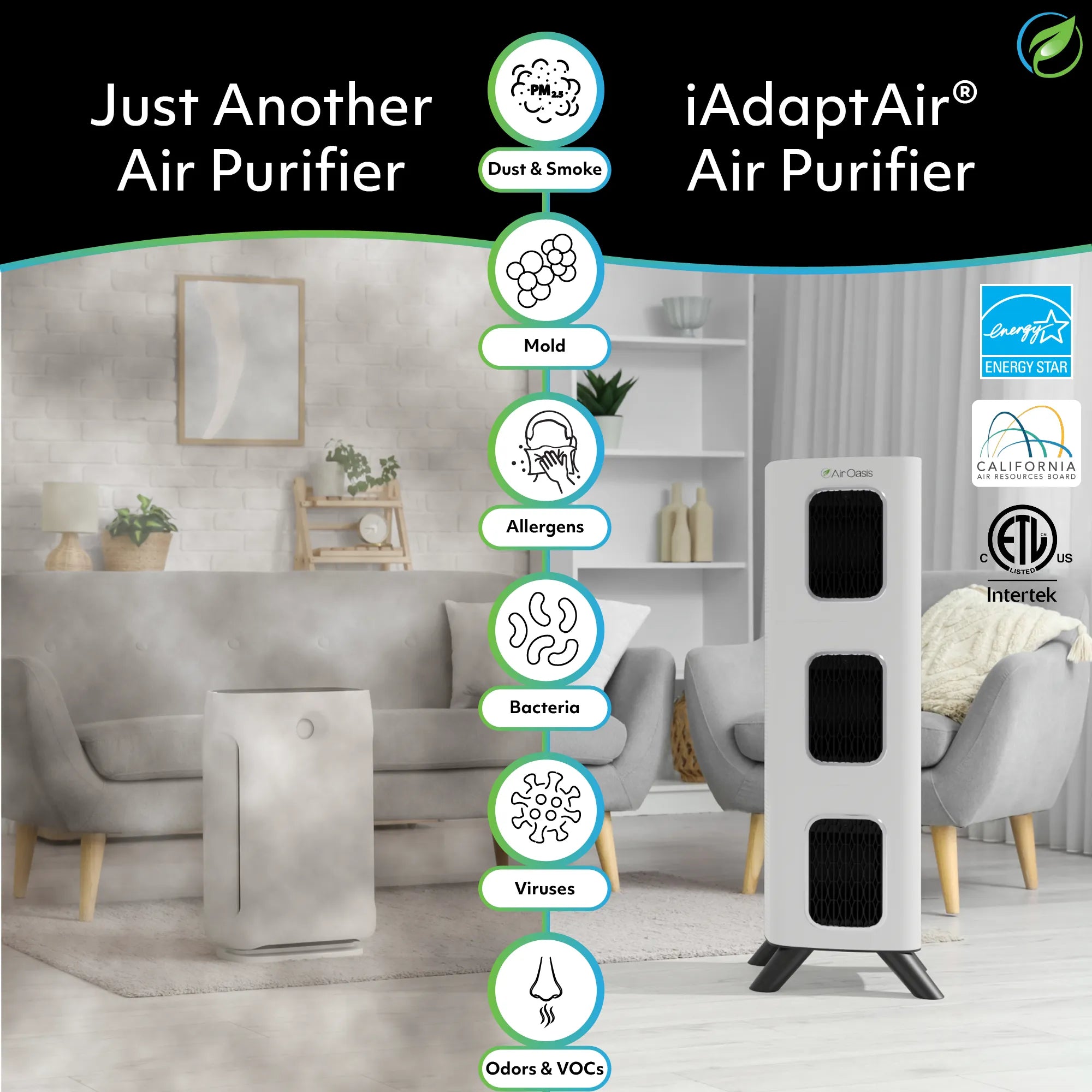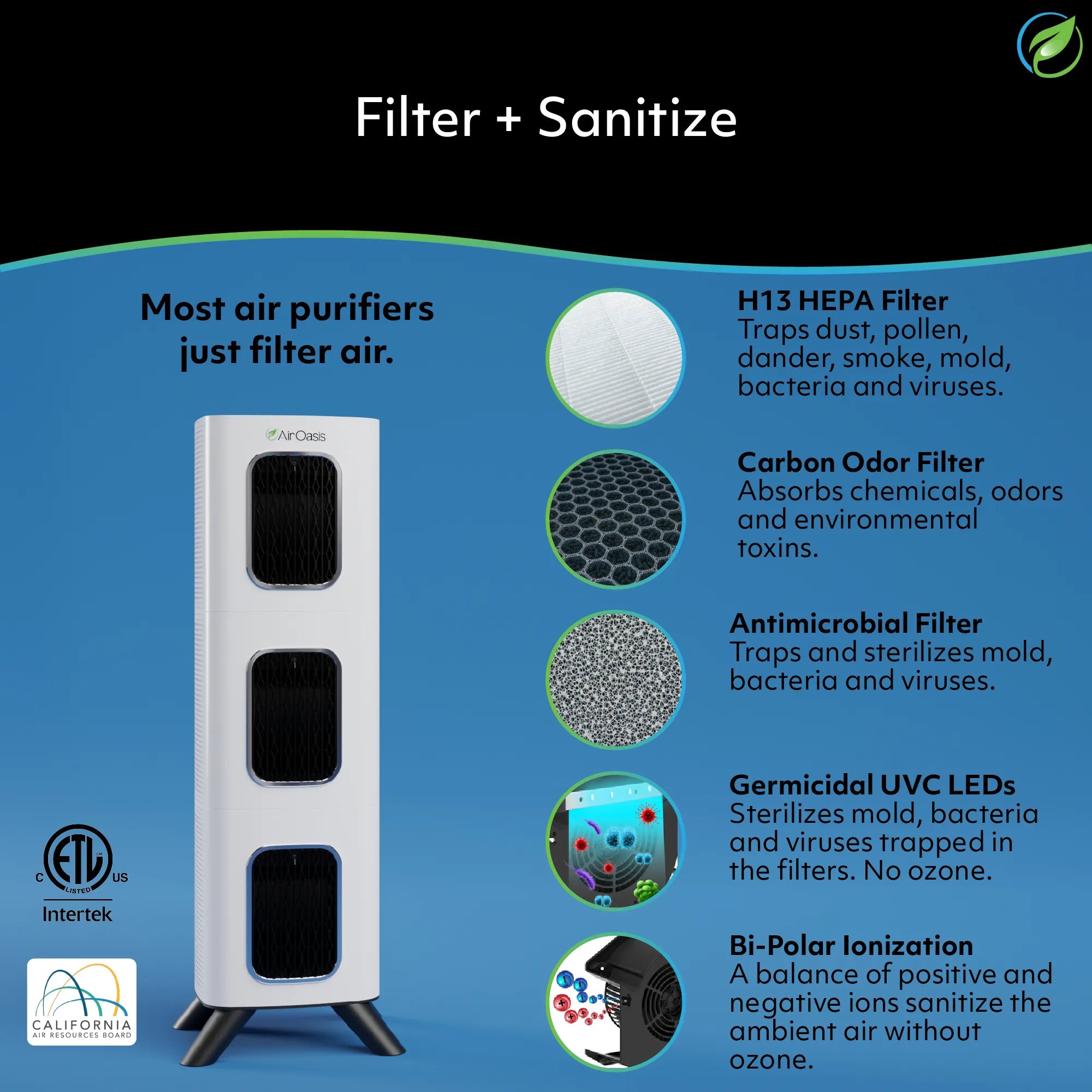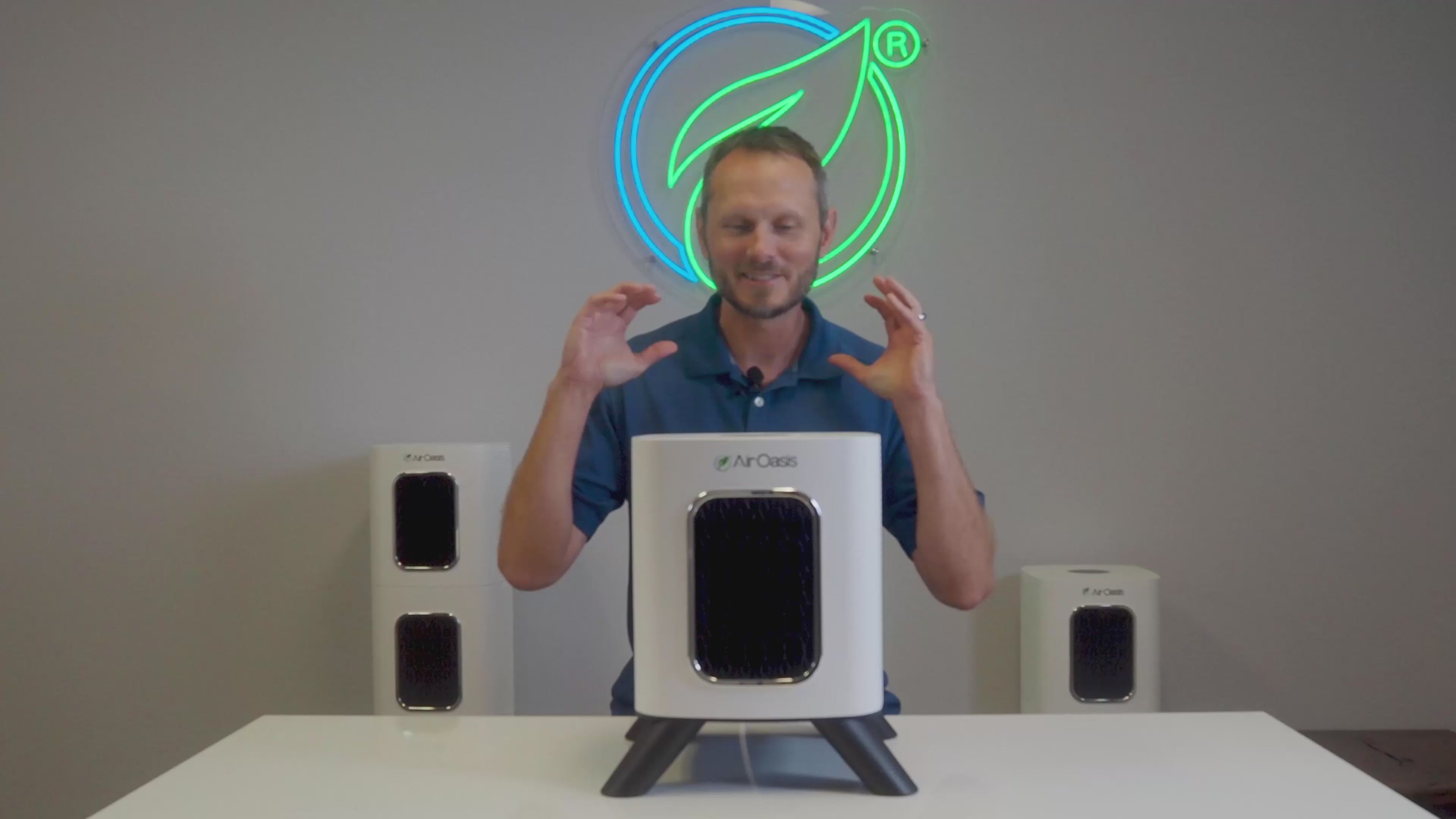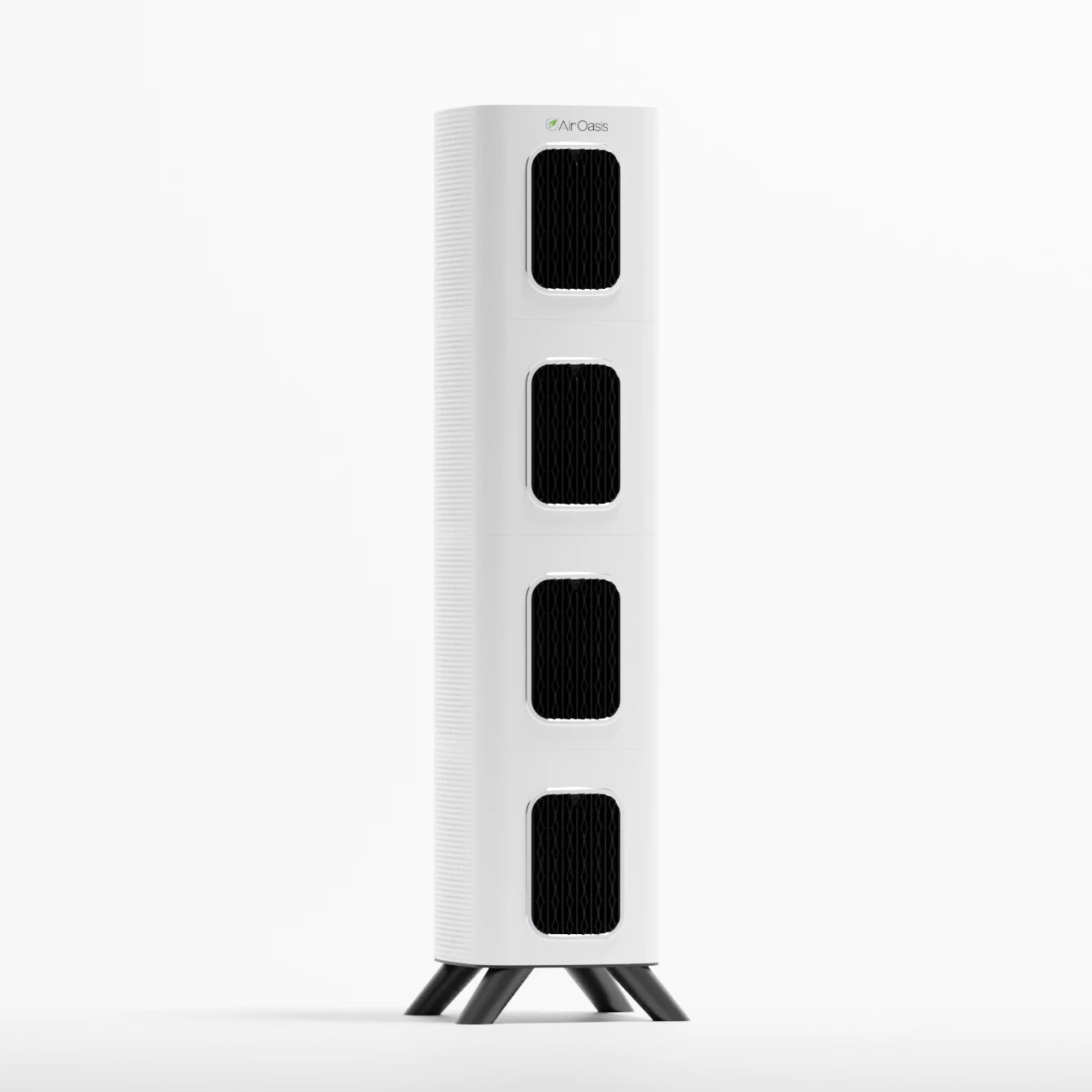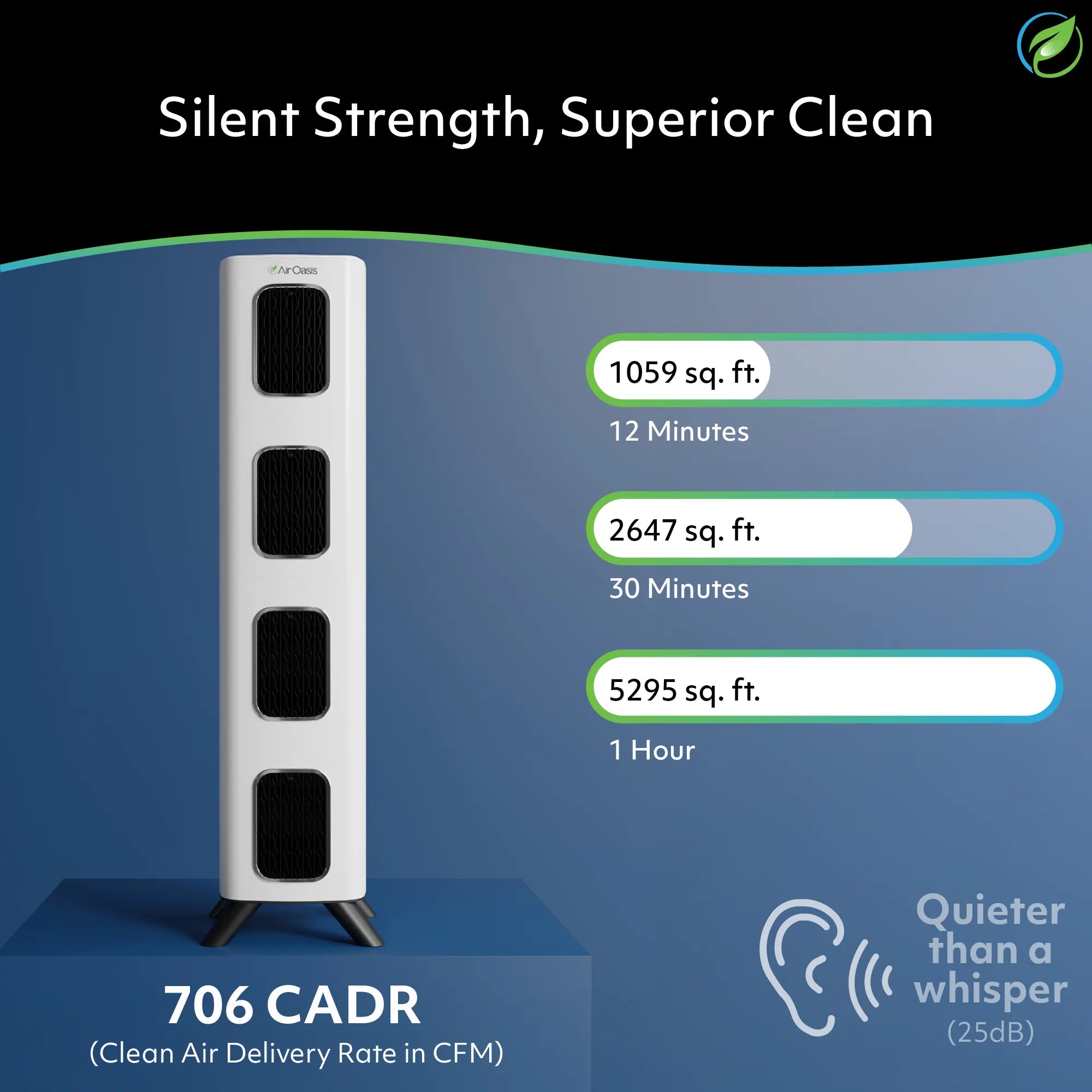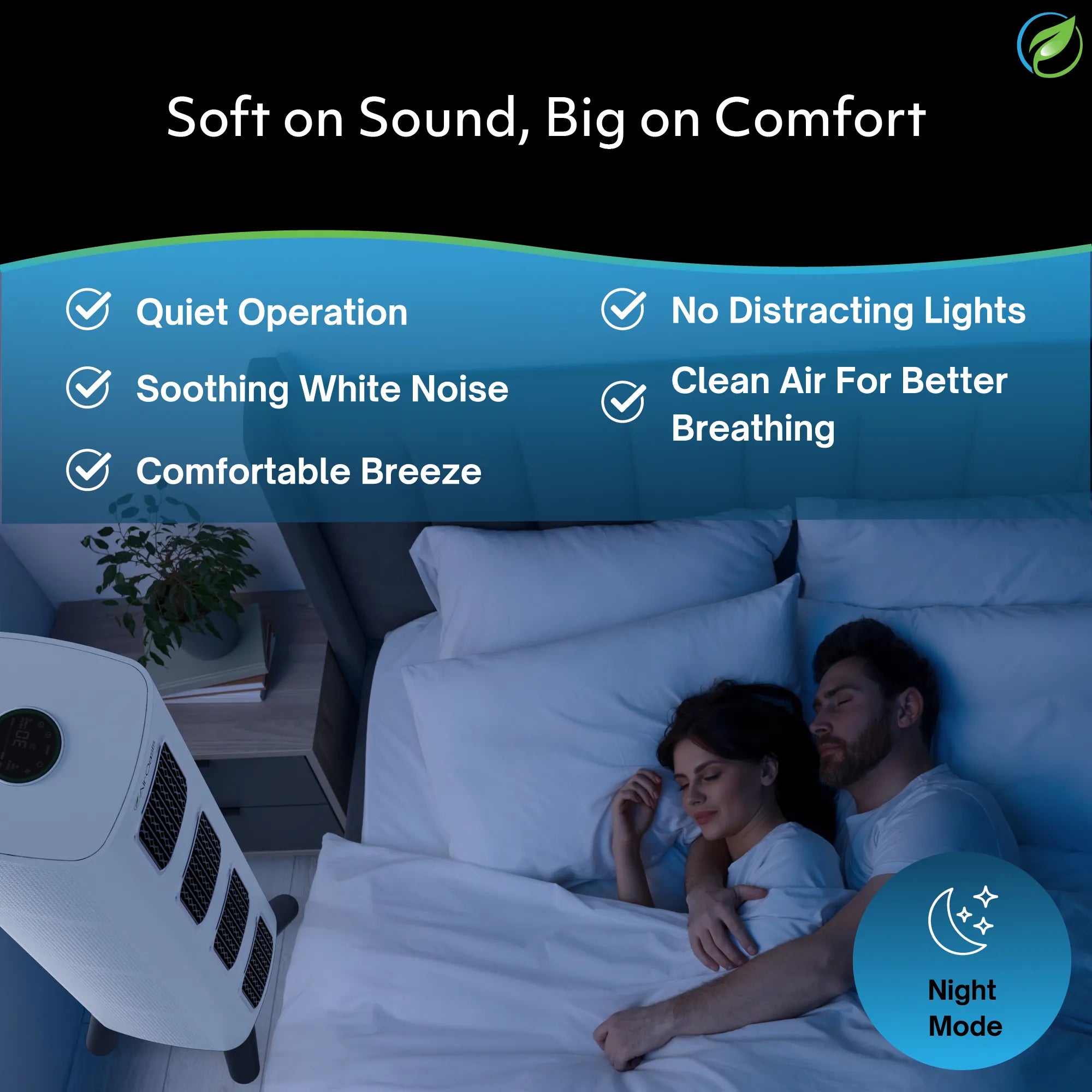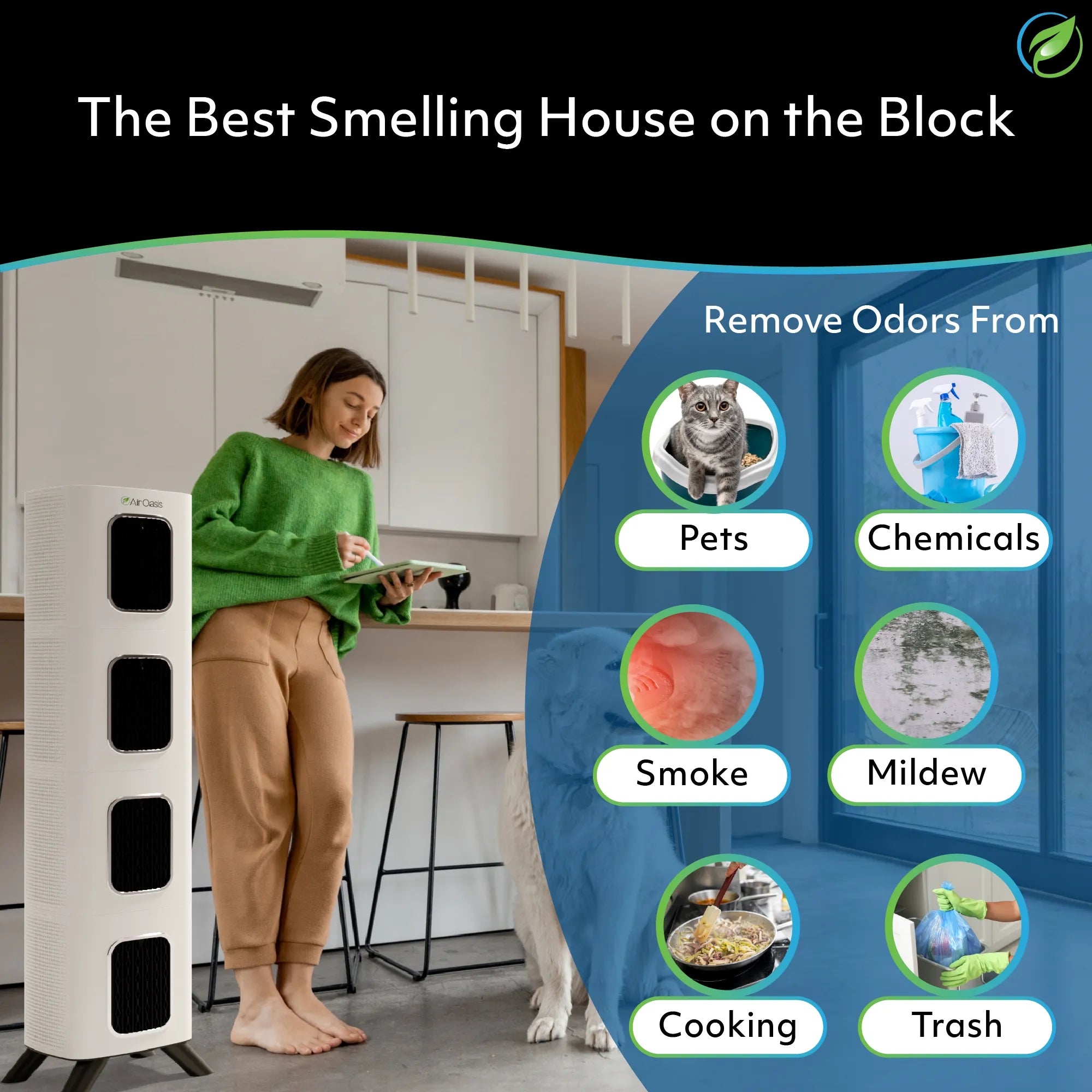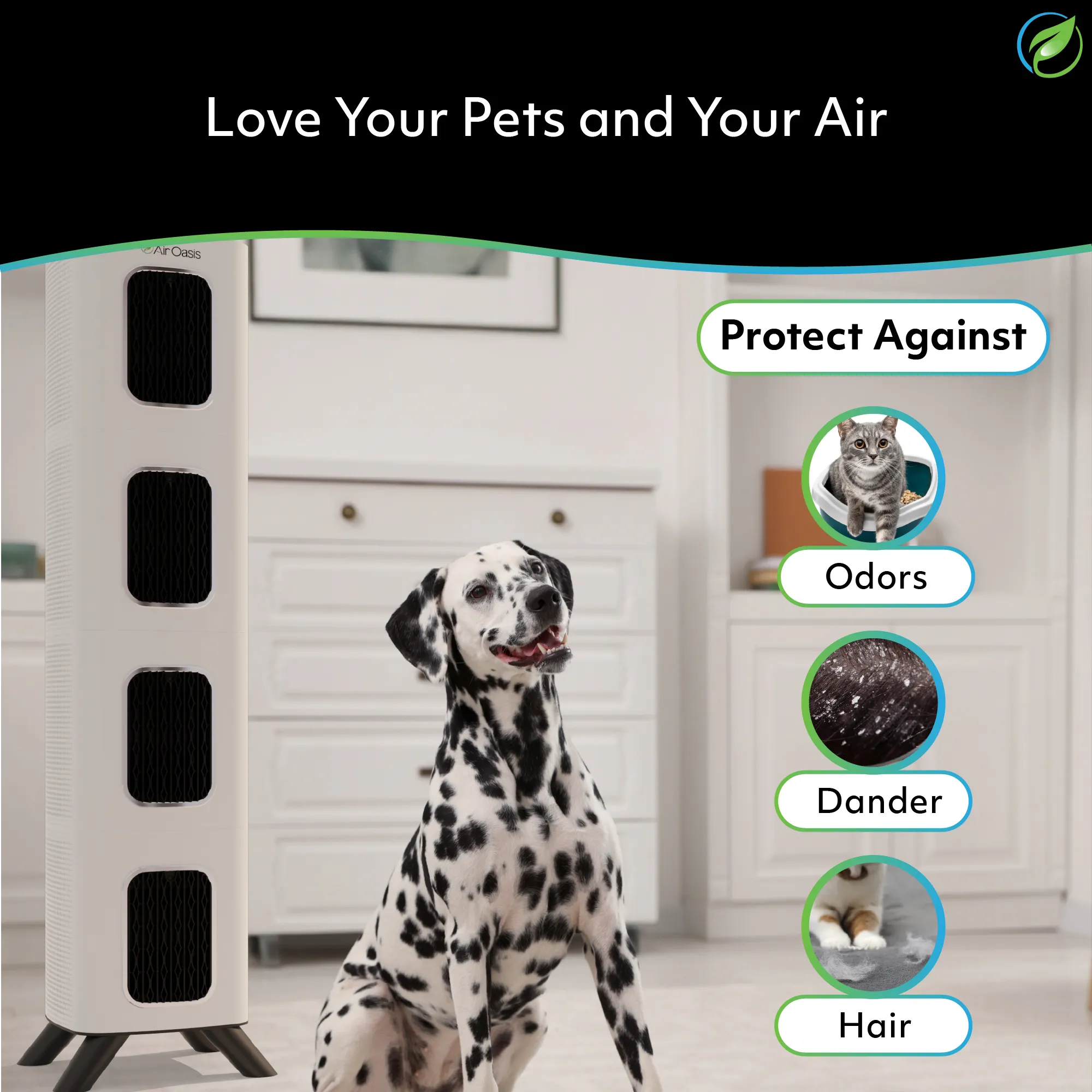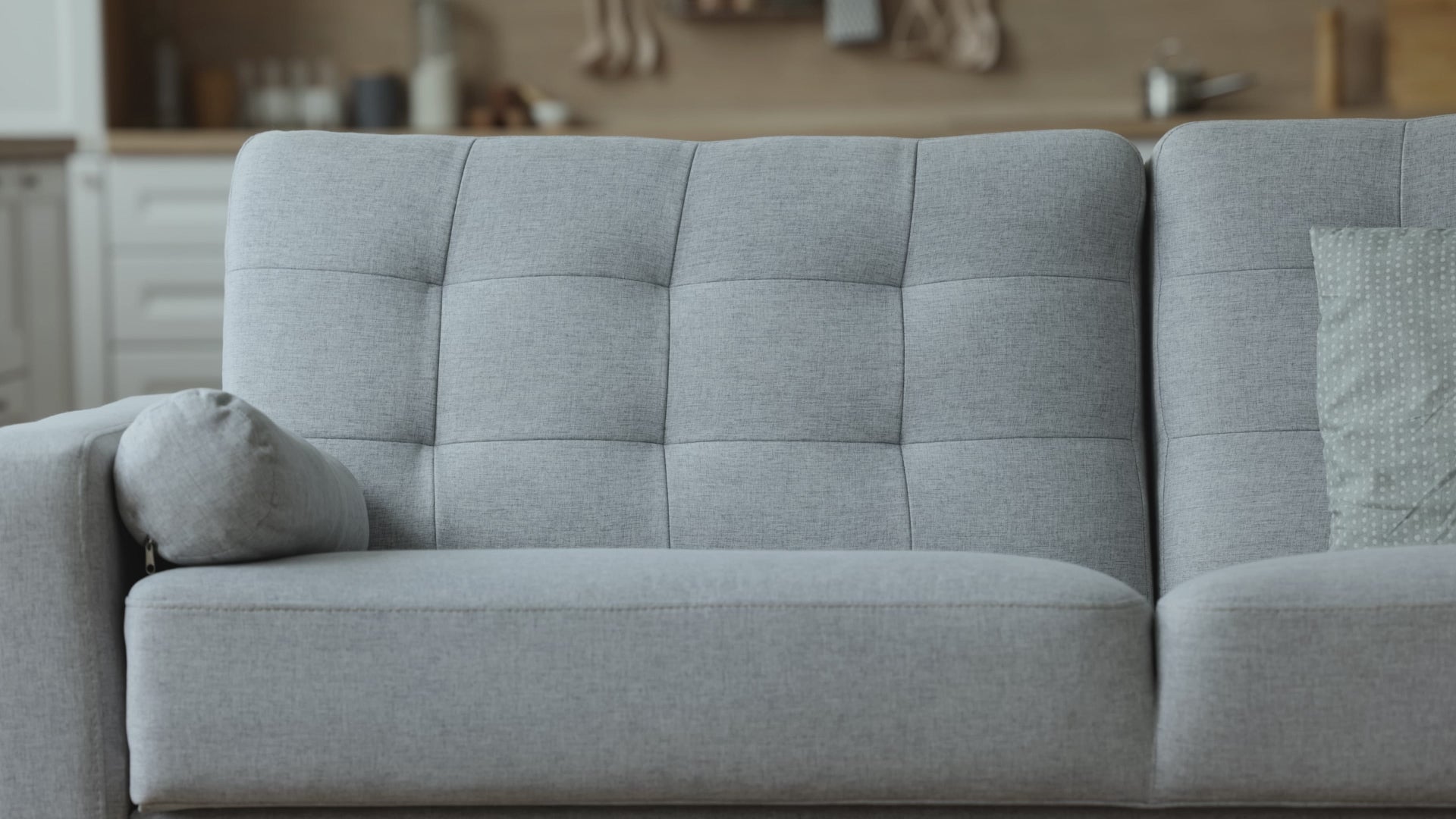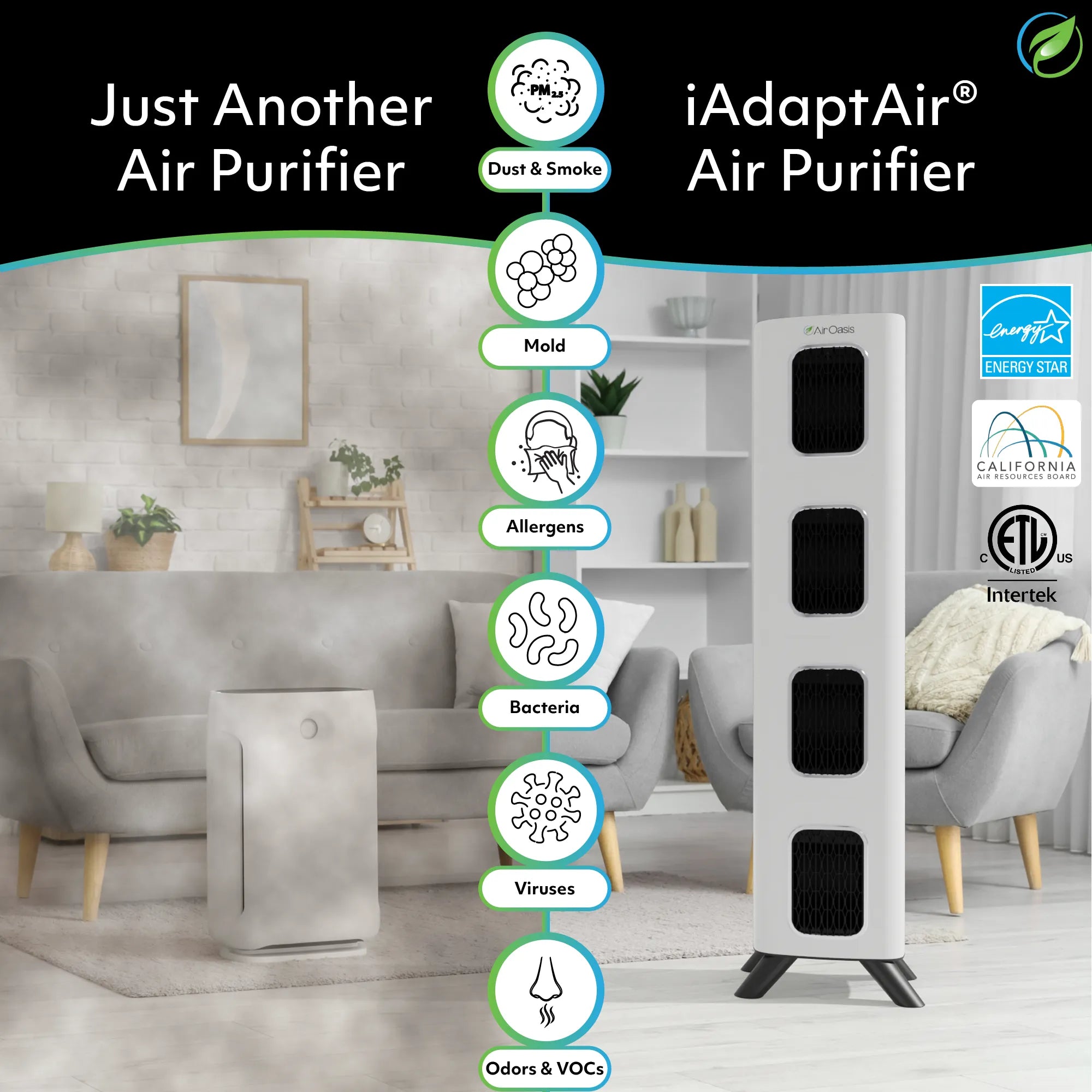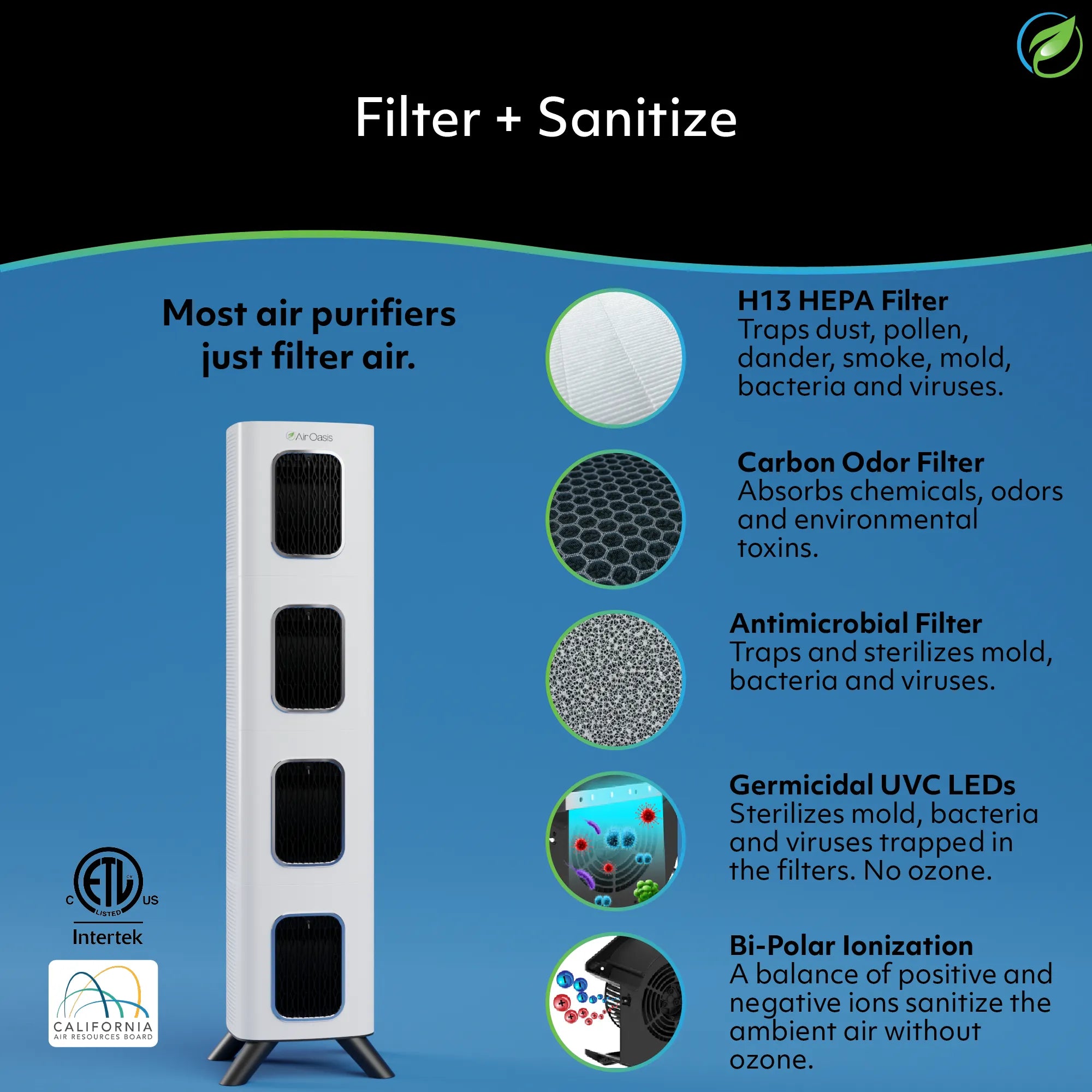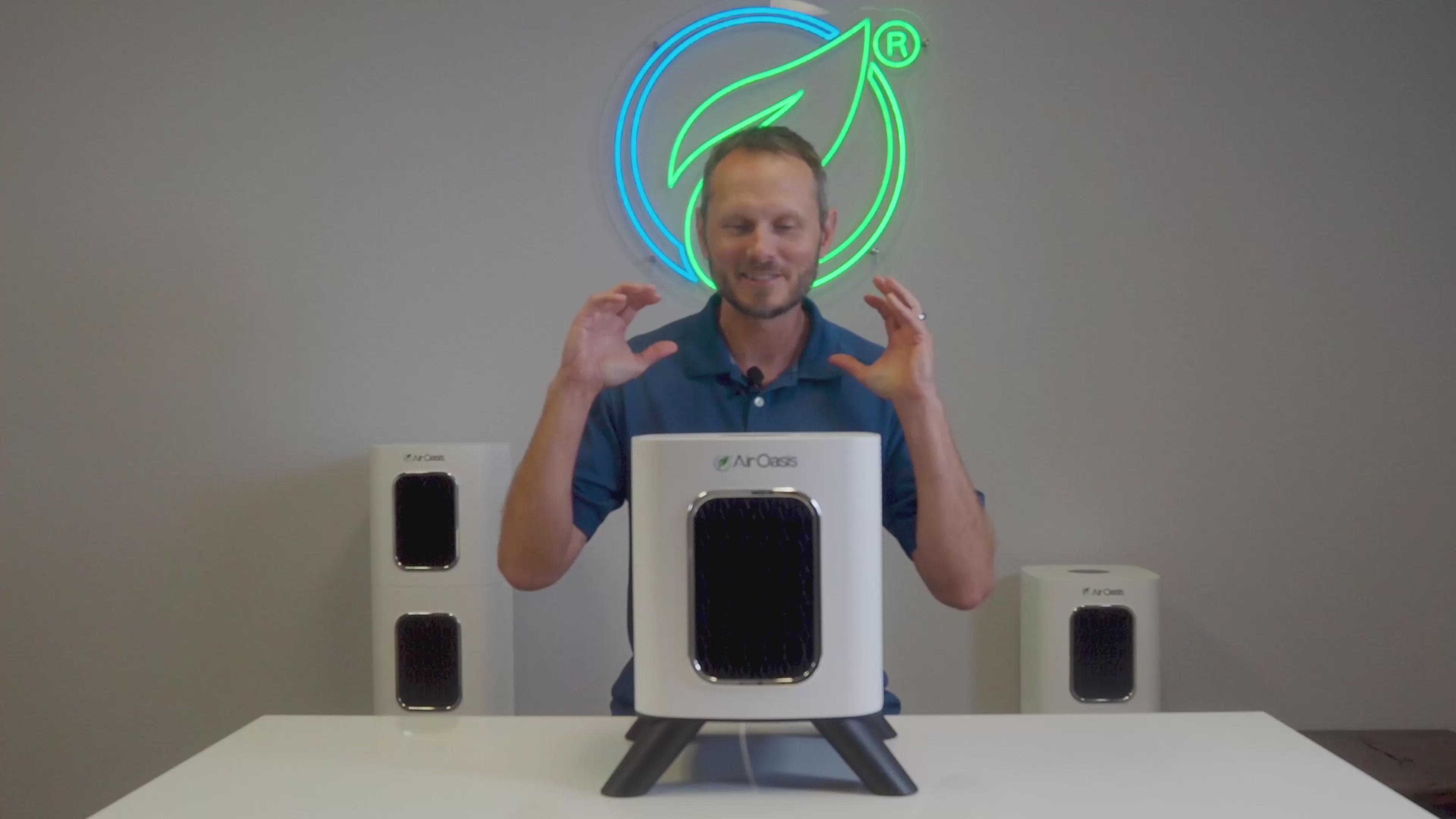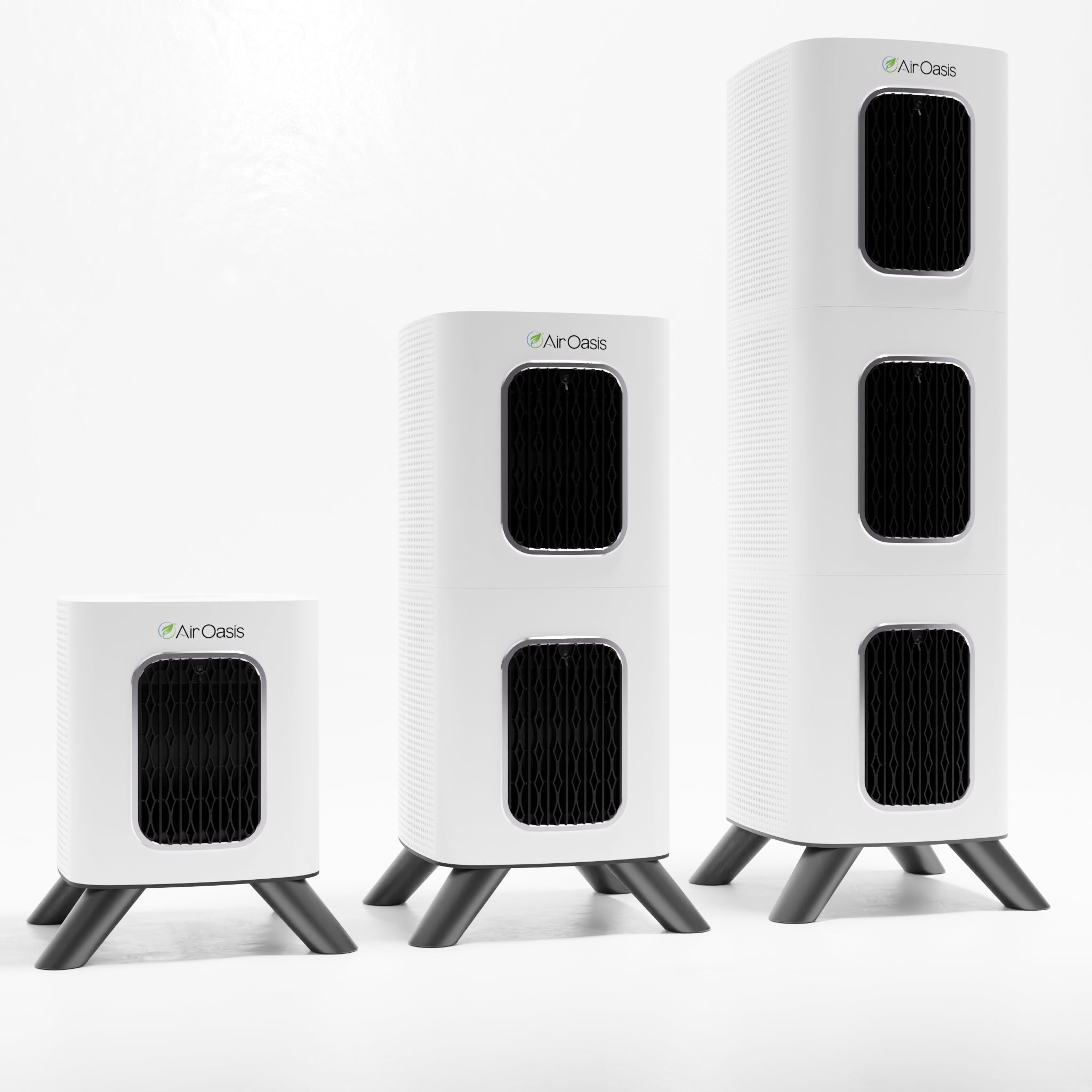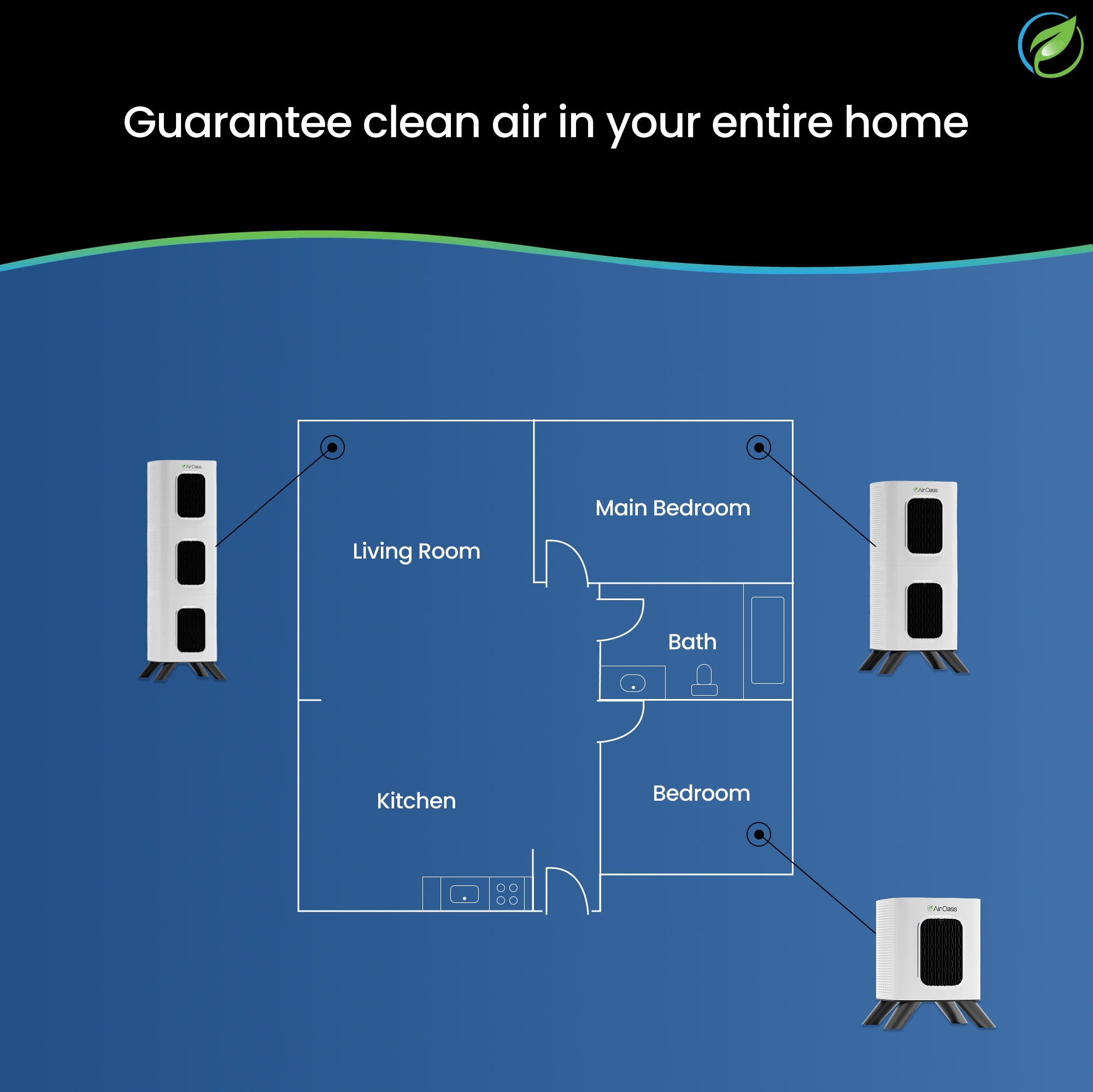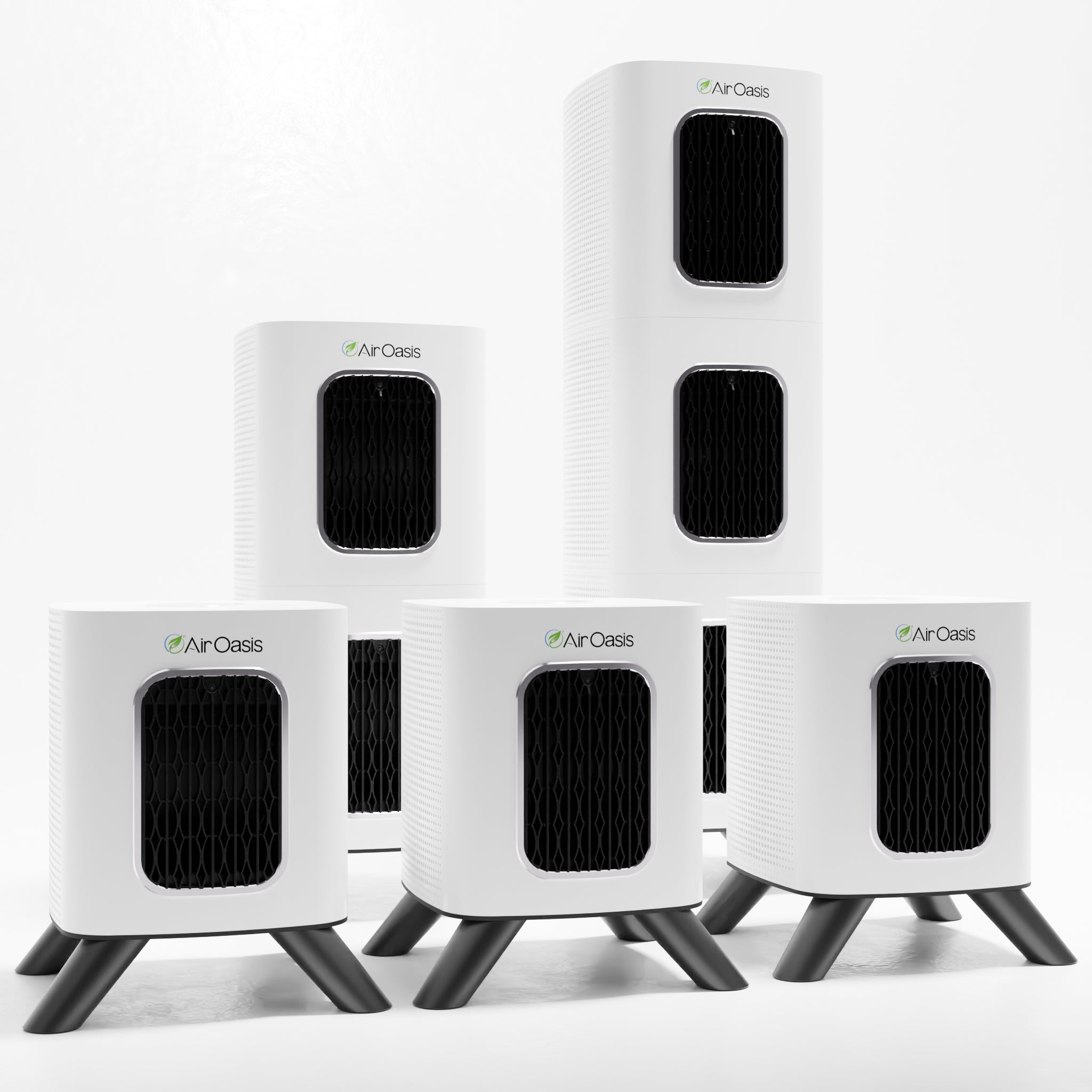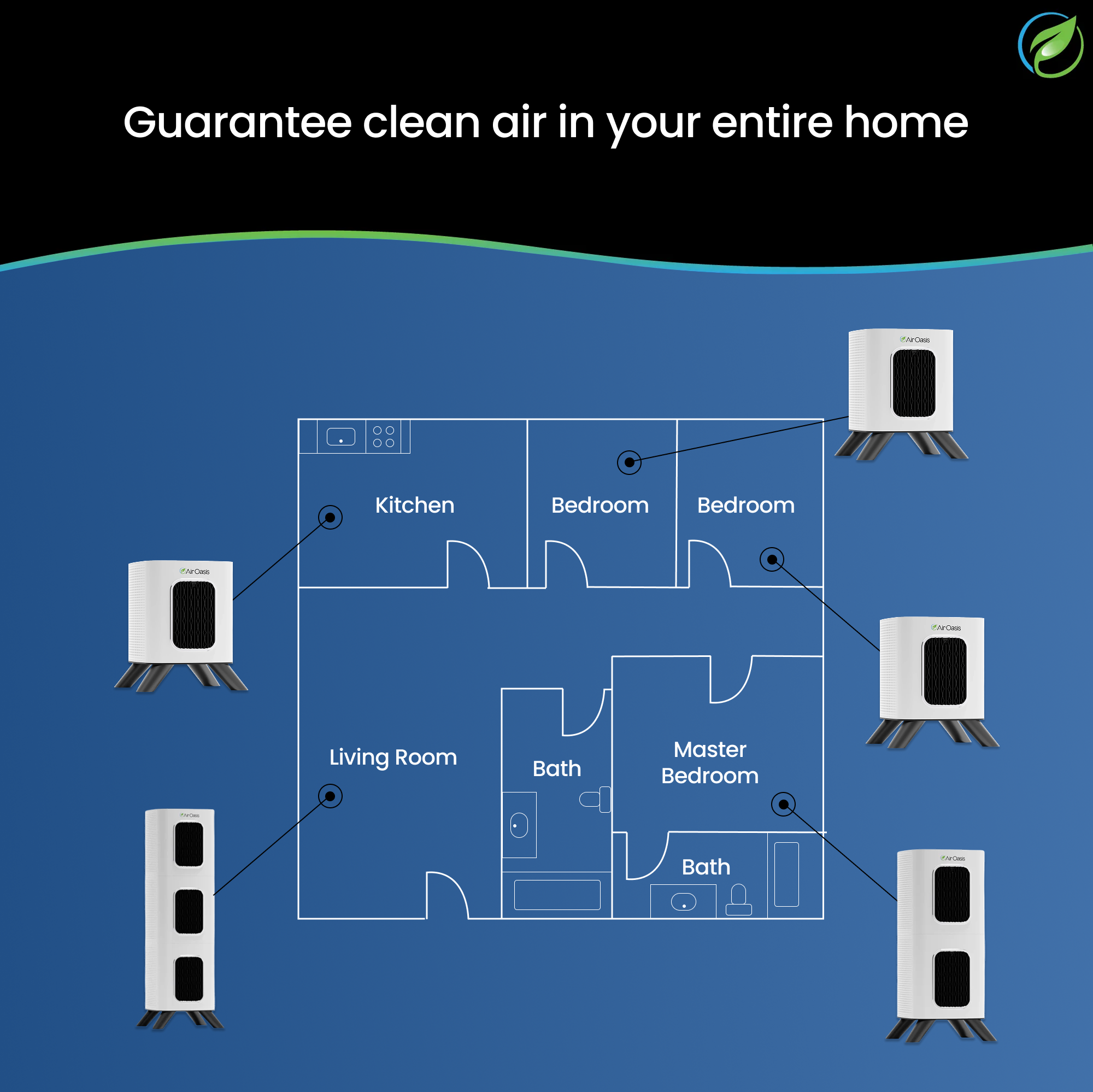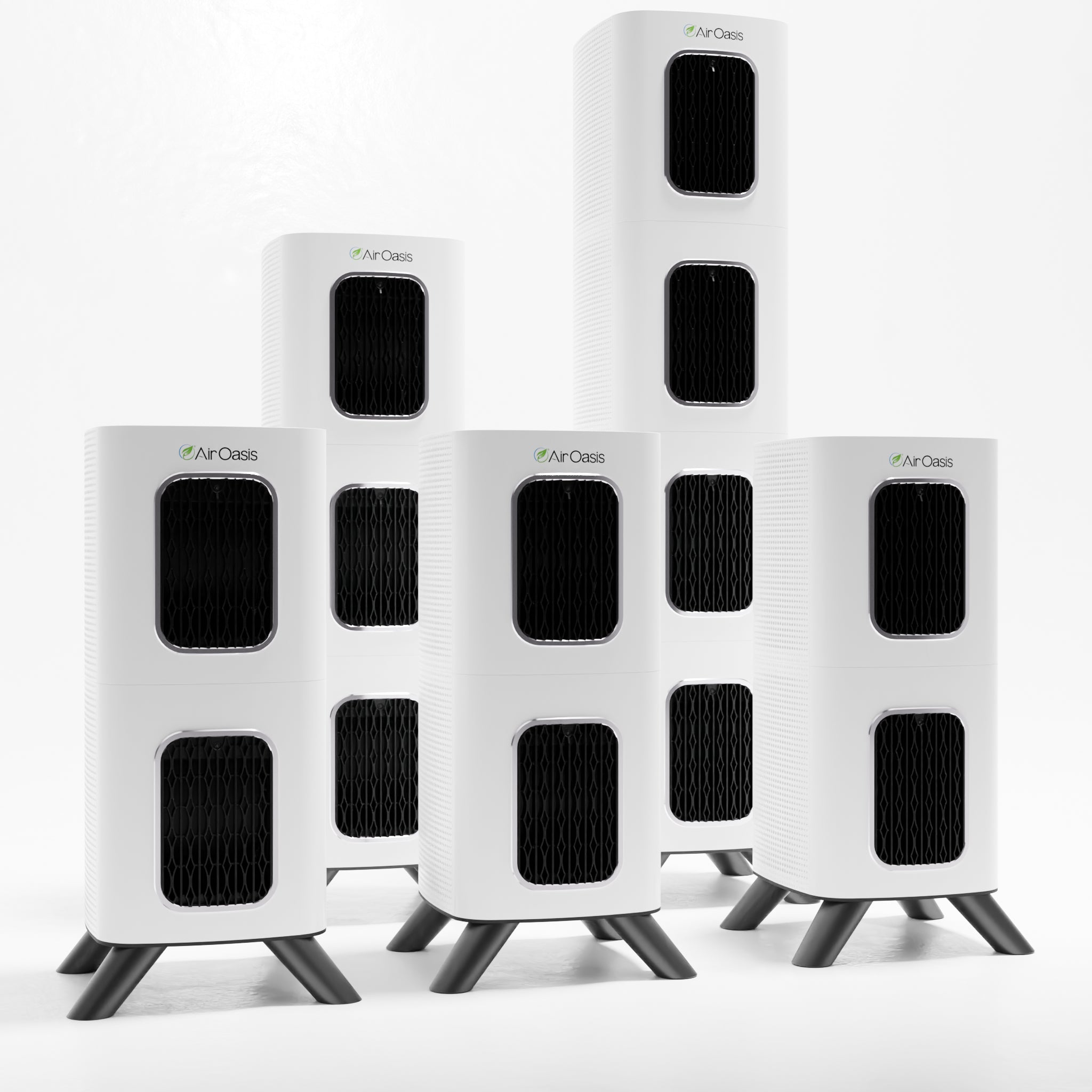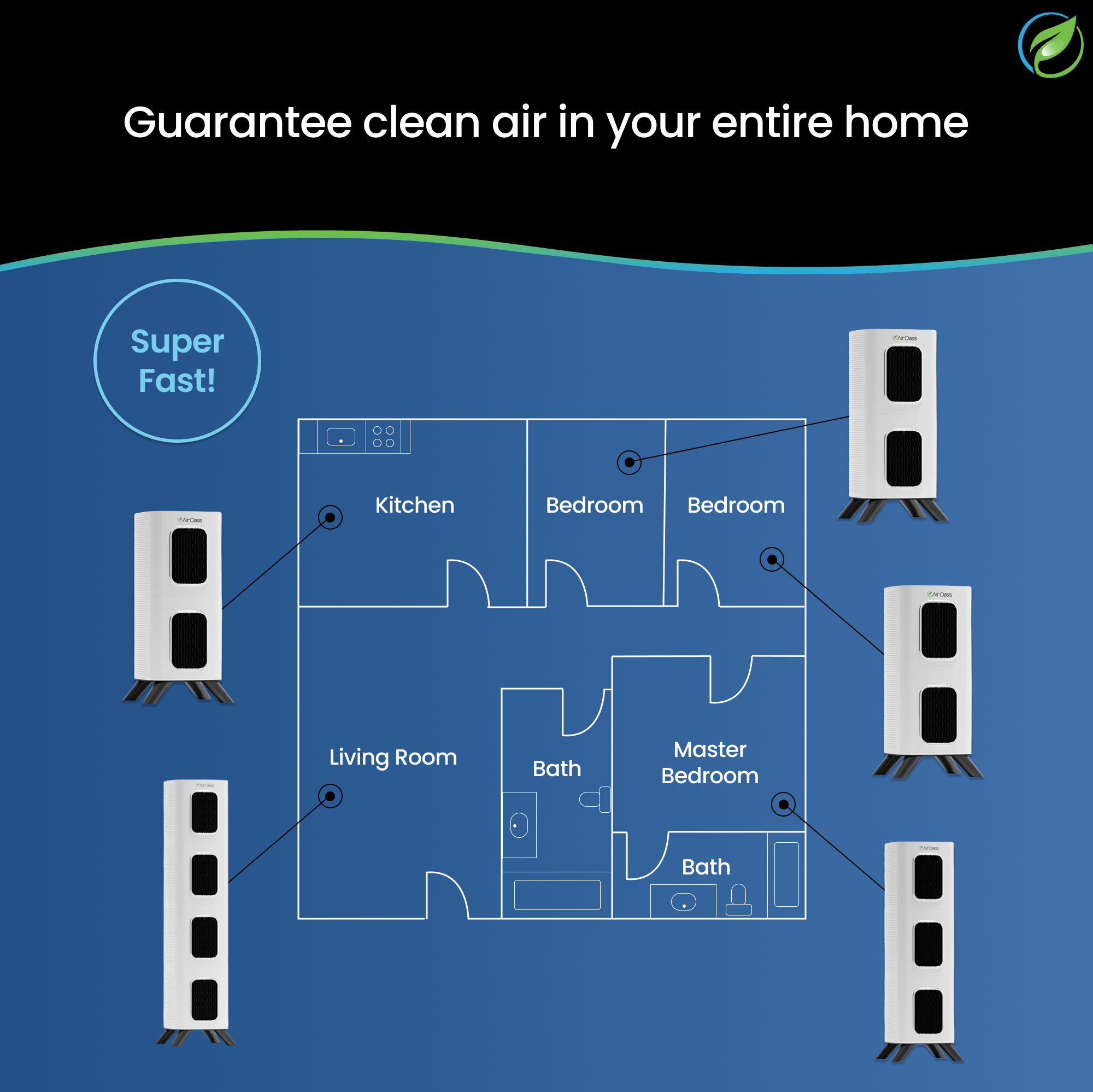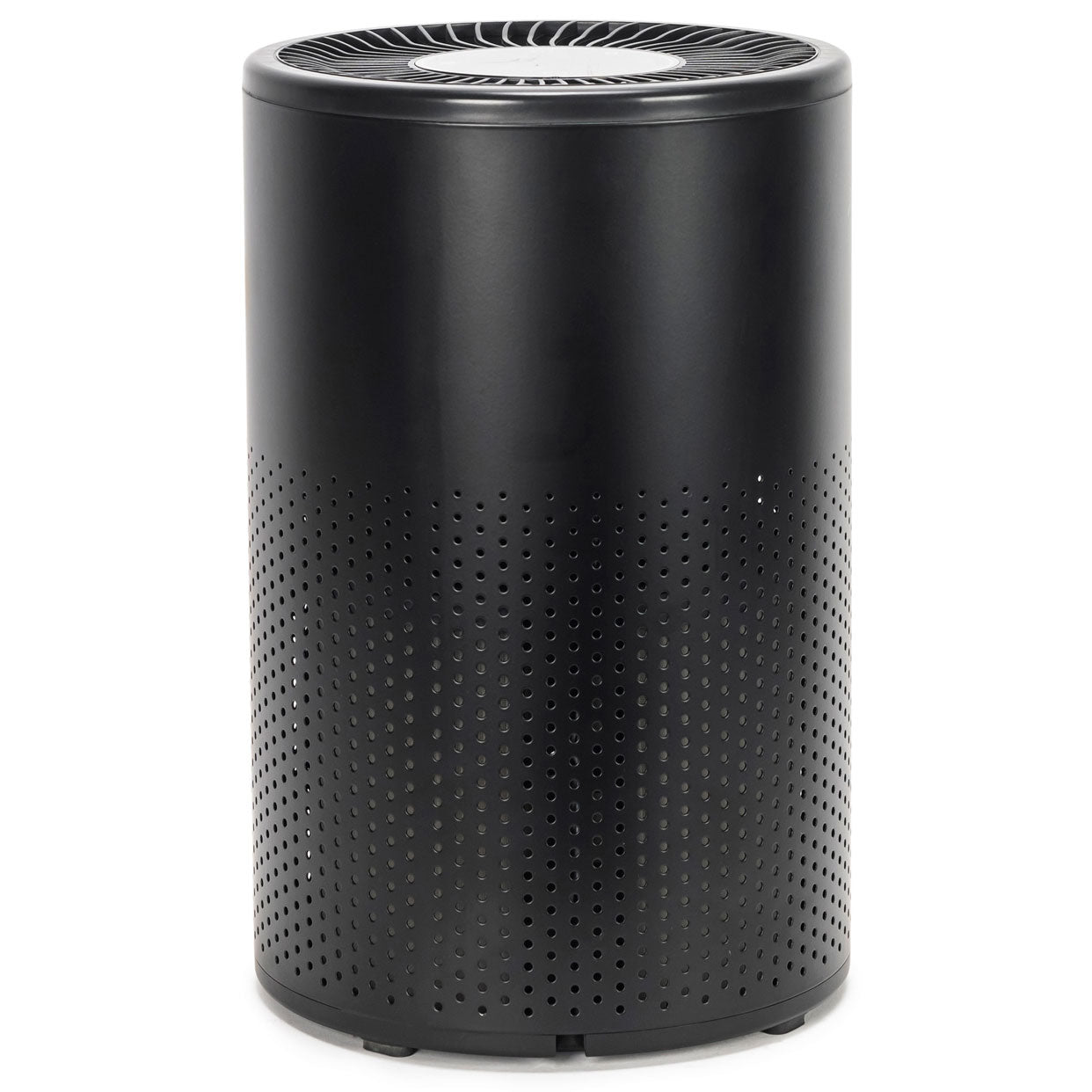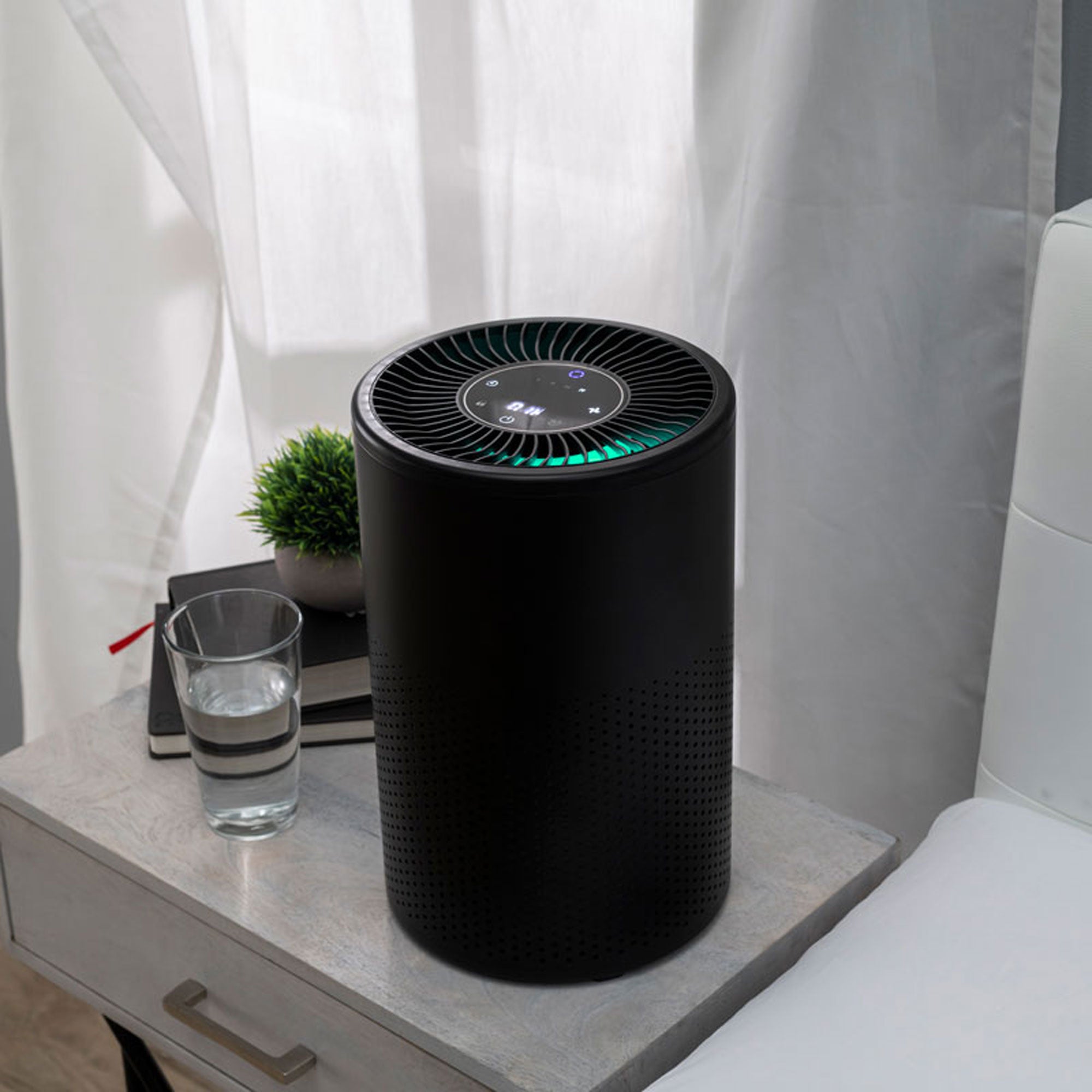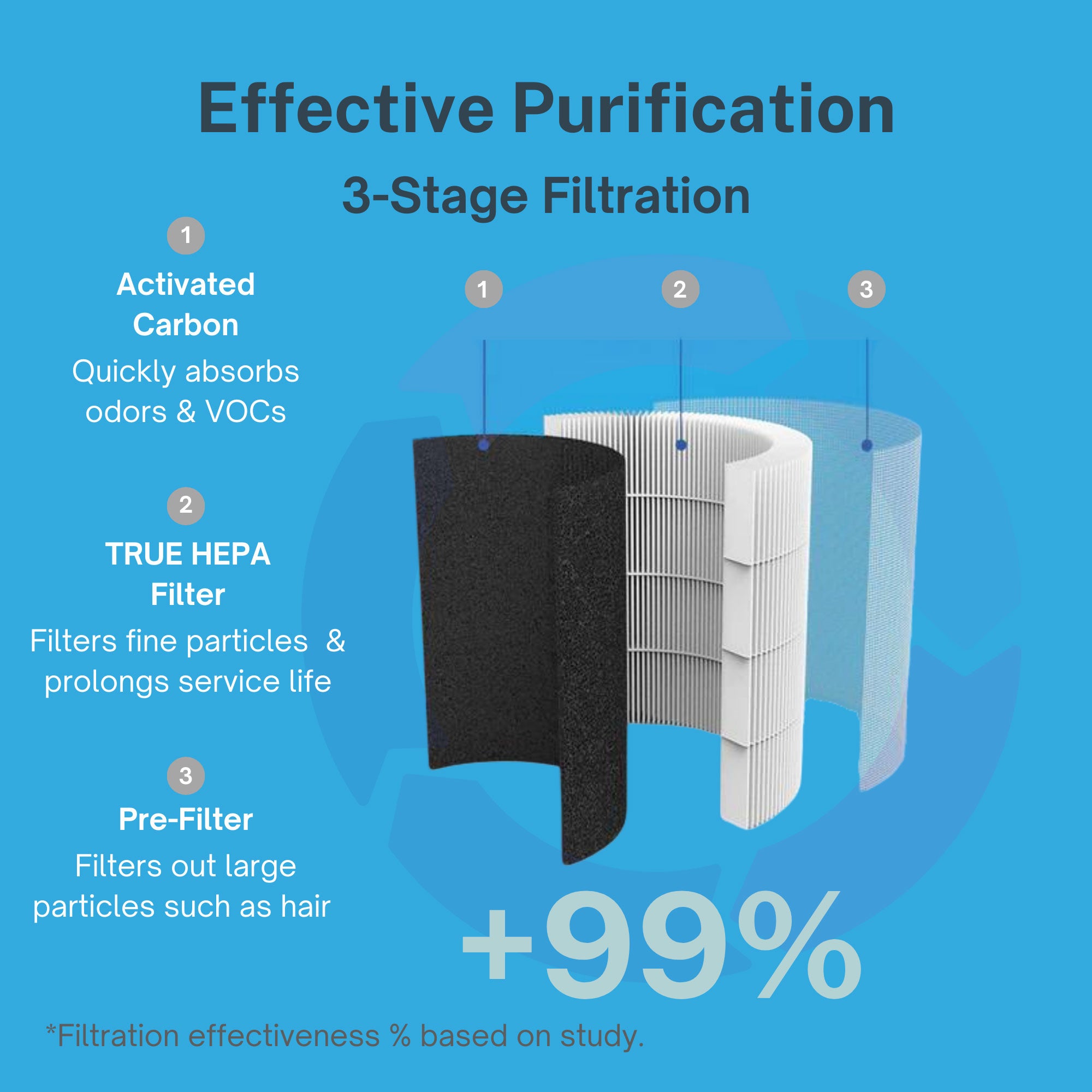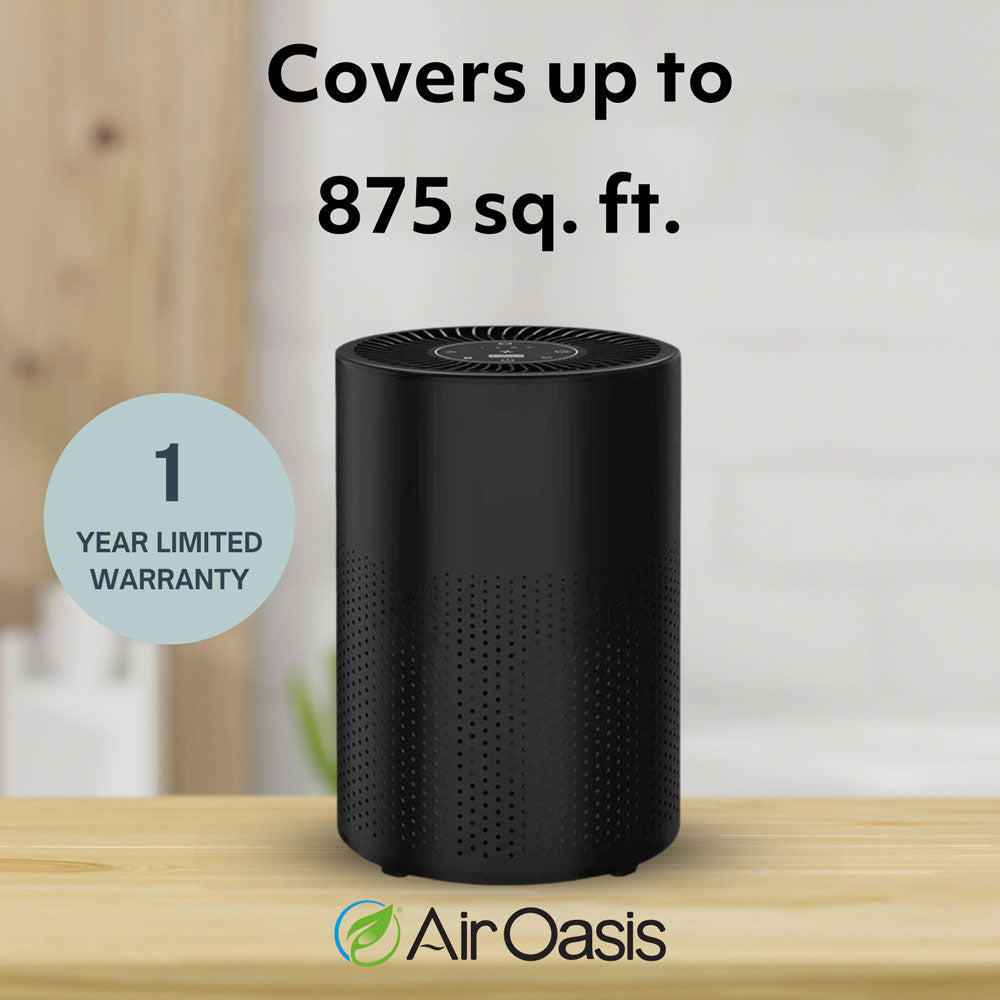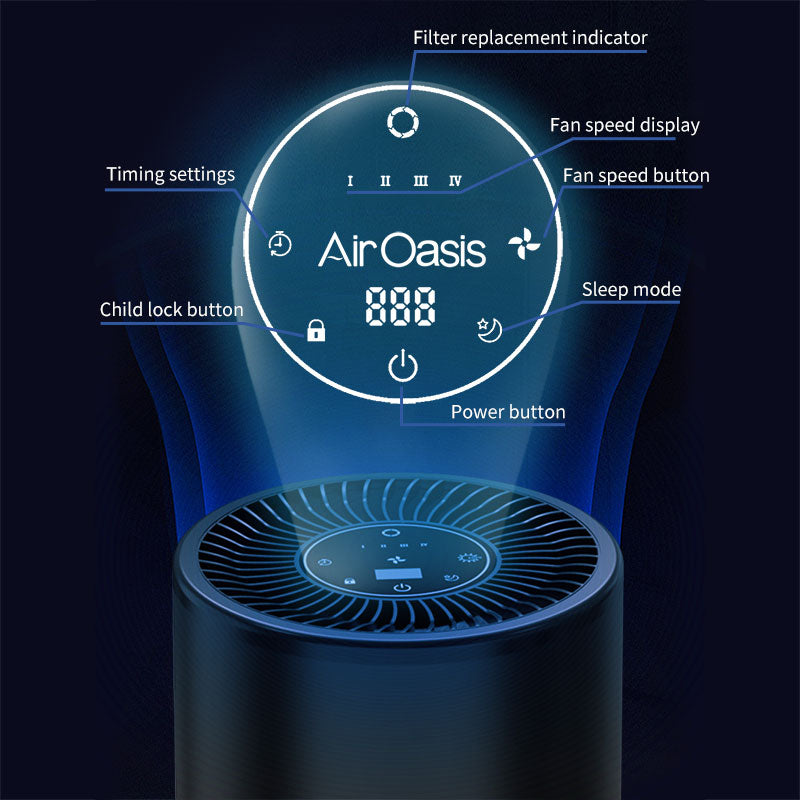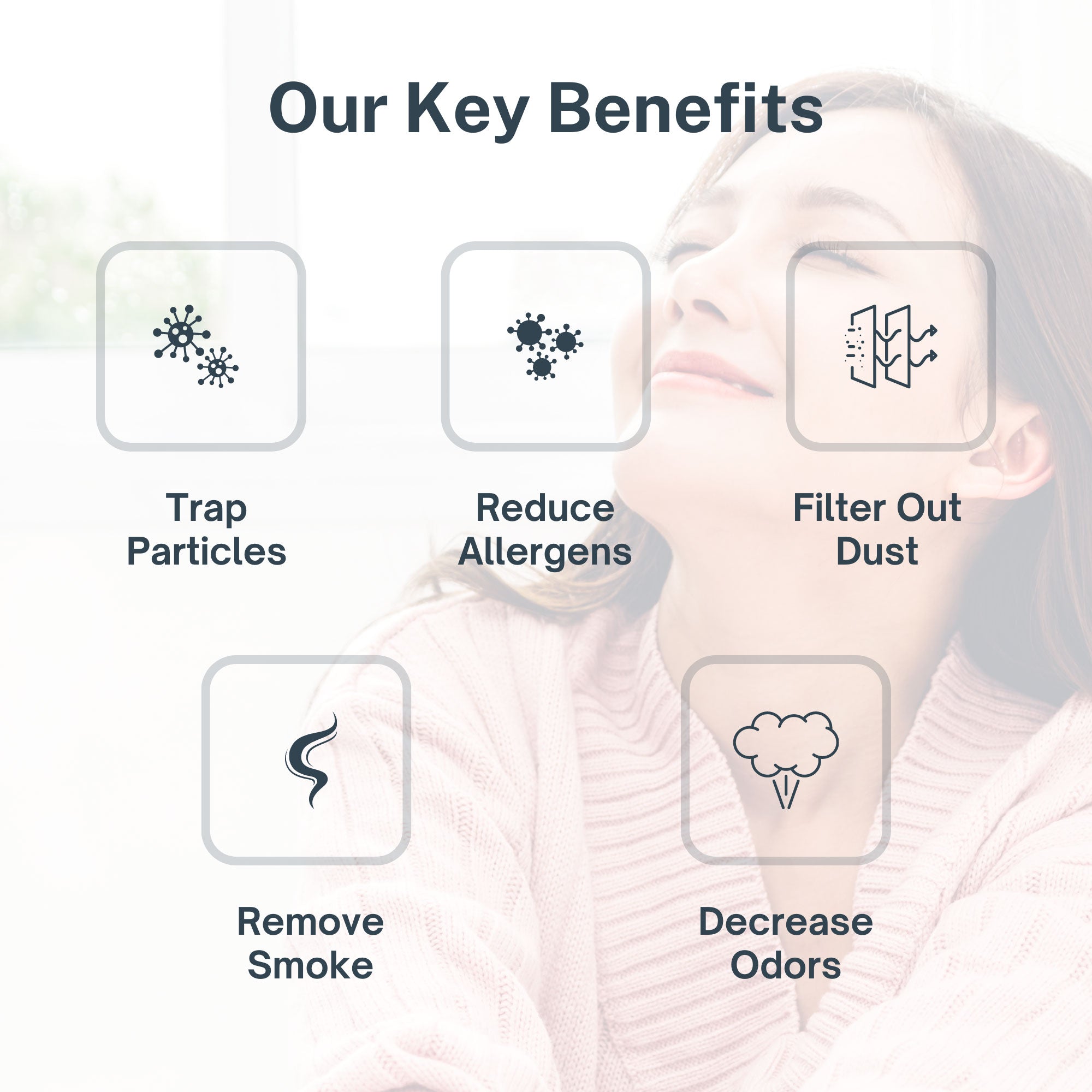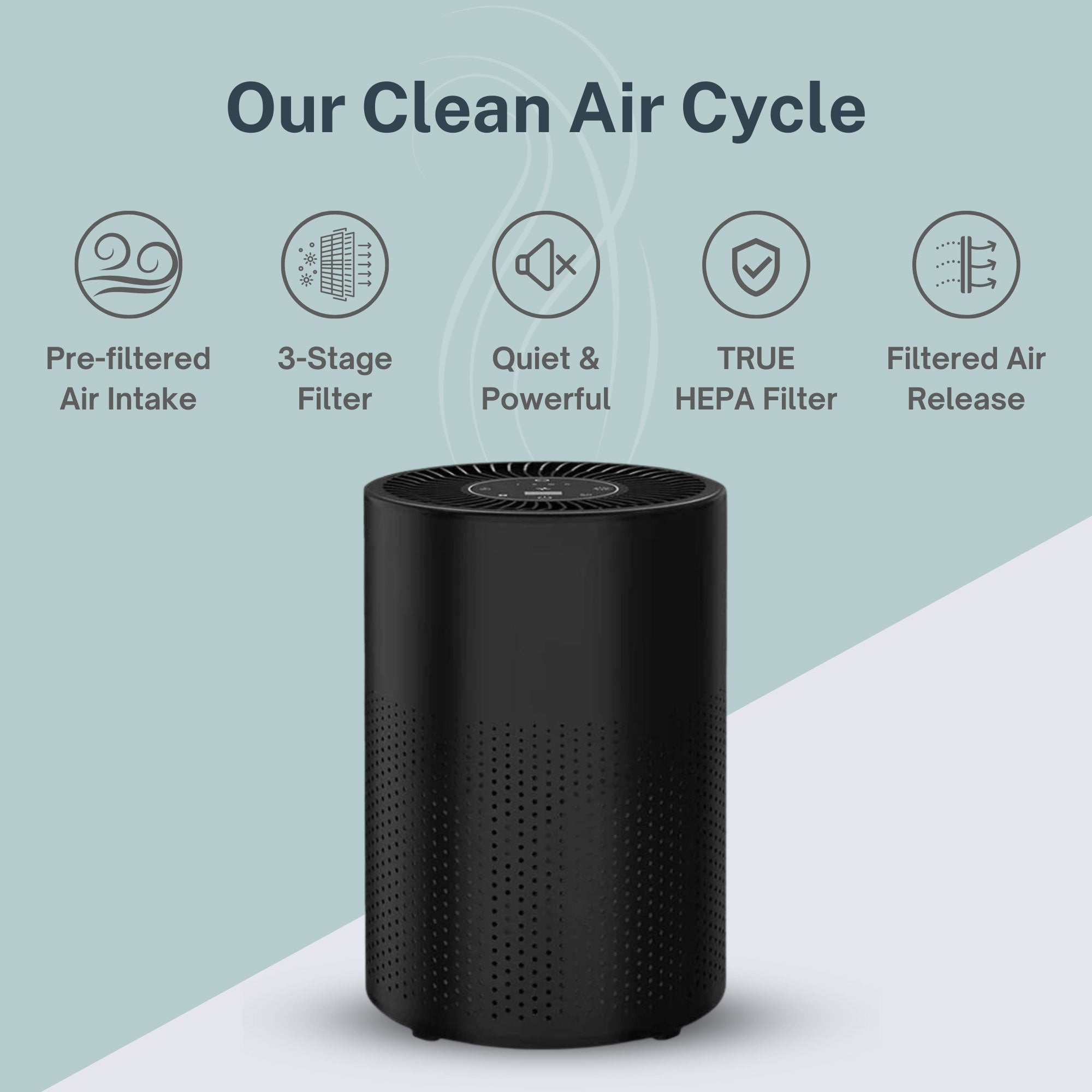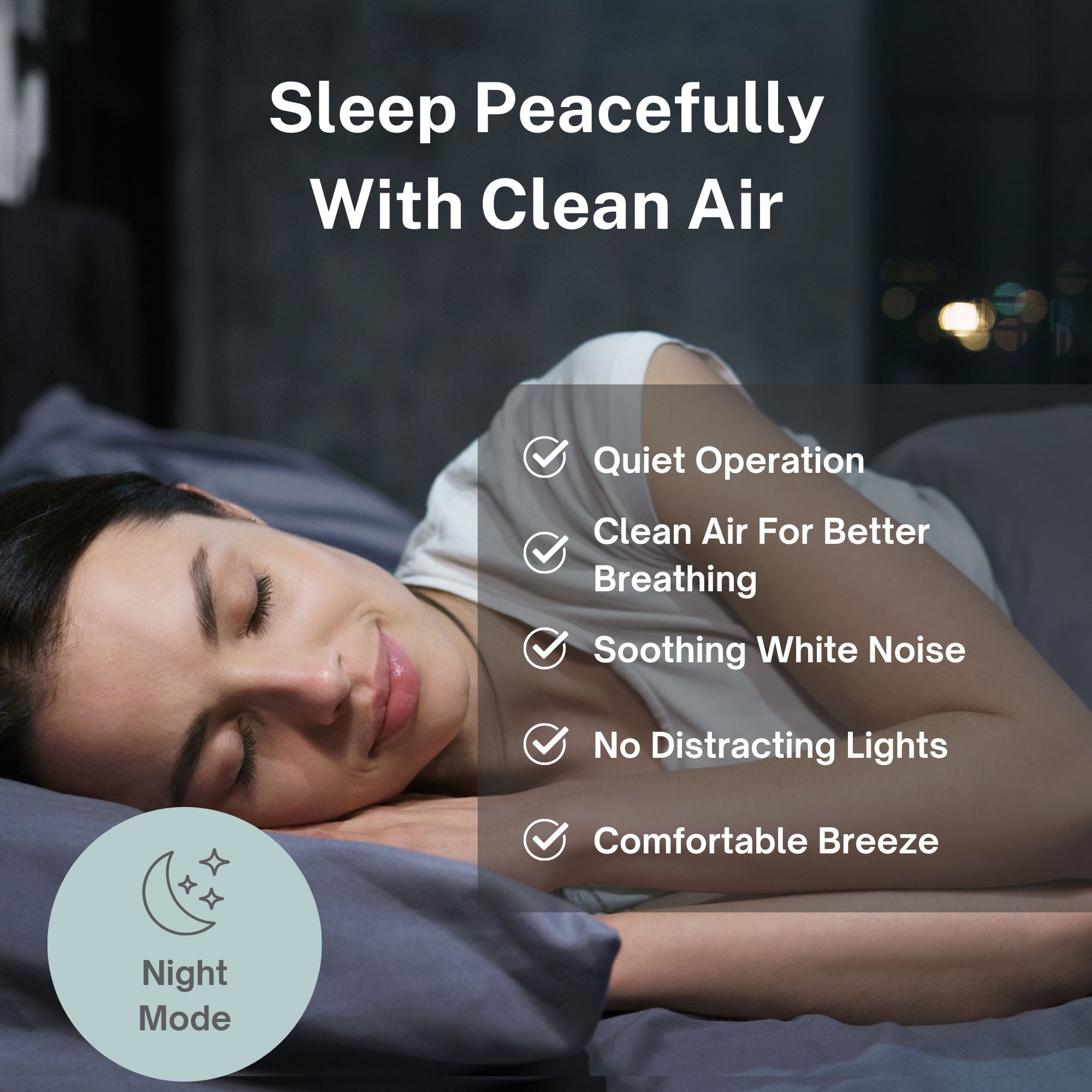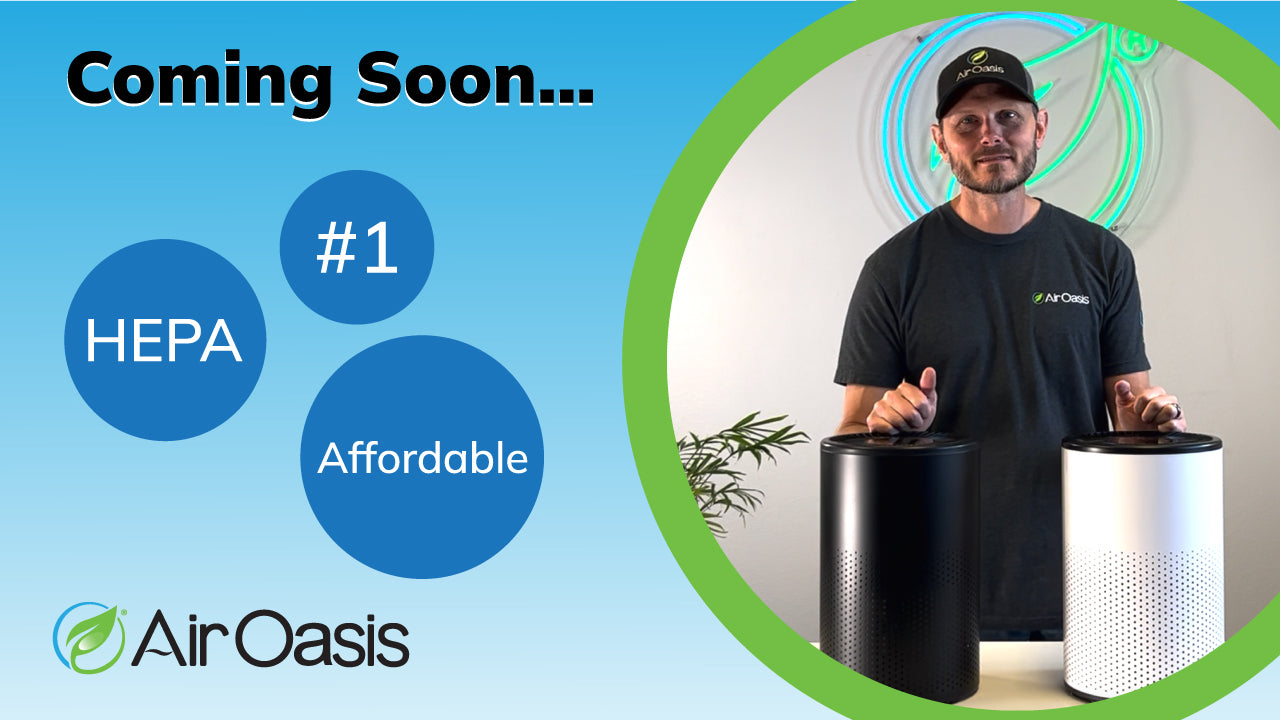Germs are everywhere, but we don’t want them to be in the air we breathe in our homes, offices, and schools every day. The more bacteria in the air, the higher chance that people breathing it will contract an illness.
Infectious bacteria are responsible for all kinds of unwelcome conditions, from the common cold to pneumonia, and more. Once in the body, bacteria reproduce quickly, and many give off toxins that can perpetuate sickness, damage tissue, and progress into infections.
While viruses have gotten a lot of attention over the last couple of years, bacteria are also at fault for major disease epidemics throughout history. The effects of fast-multiplying, fast-spreading airborne bacteria are many, and the best defense you have is thorough surface cleaning and high-quality air purifiers.
Do air purifiers kill bacteria? Yes. Read on to learn how.
Air Oasis is committed to filling your home, office, school, or other indoor space with cleaner air. The air you breathe impacts your whole health, and our aim is to give you absolute confidence that your air is as clean as possible. Compare air purifiers for bacteria (and allergens, viruses, pollutants, and more) on this page.
Bacteria in the Air
First, let’s talk about the transmission of airborne bacteria and why using an air purifier to kill bacteria is important to begin with.
The air we breathe is full of microorganisms. You probably know that. Invisible to the naked eye, these are tiny particles that can contain all kinds of things, from harmless microbes to fungus to extremely harmful toxins.
The bacteria you’d commonly find indoors comes from a few different sources, including human-associated bacteria (from coughing, sneezing, skin cells, etc.) to animal-associated bacteria (similar sources) to plant-associated bacteria (fungi and other spores).
Here are a few important facts:
- In any given environment, there can be over 1,800 different kinds of bacteria in the air.
- Some harmful kinds of bacteria — including Salmonella and Staphylococcus aureus (which causes MRSA) — can live in the air for up to four hours. To put that in perspective, bacteria may only live on your hands for about five minutes.
- Some of the most frequently identified airborne bacteria include Micrococcus, Staphylococcus, and Aerococcus.
- It is possible to get a bacterial respiratory infection from respiratory droplets emitted into the air by someone’s cough or sneeze.
According to the Environmental Protection Agency (EPA), health effects of biological contaminants in the air can include the following:
- Allergic reactions, including asthma and allergic rhinitis
- Infectious illnesses, such as the flu, chicken pox, and measles
- General health problems, including digestion issues, fevers, shortness of breath, sneezing, watery eyes, lethargy, dizziness, and more
Air Purifiers and Bacteria: What Does the Research Say?
Most of us live with some exposure prevention or reduction methods in place. We wash our hands, have hand sanitizer stashed in every conceivable place, and don’t touch publicly used surfaces. But, as we saw above, our hands aren’t actually the place harmful bacteria live the longest. The more urgent question becomes: How are we controlling air quality, where bacteria live longer?
That’s where air purifiers come in, and it’s important to look at the impartial, official research that has been conducted about air purifiers and bacteria.
Assessment of Air Purifiers and the Airborne Bacteria, Staphylococcus Epidermidis
In a 2019 study, air purifiers were tested against the airborne bacteria, Staphylococcus epidermidis. S. epidermidis can cause sinus infections, wound infections, boils, endocarditis, and other inflammations. It is particularly problematic because the bacterium may hide out in the body, unnoticed by the immune system and unfought for months or even years. If it does become active, it can cause significant health issues, like those listed above.
S. epidermidis was injected into a test chamber using a nebulizer. After operation of a HEPA air purifier, the bacterial strain was reduced by 95%.Indoor Bacterial Load and Air Quality in Public Schools
Concern over the air quality in public schools has long occupied the minds of parents, educators, administrators, and policymakers nationwide. Bacteria spreads quickly among children, and everyone shares the goal of increasing safety and reducing the prevalence of sickness in schools.
- A multidisciplinary study in 2019 first measured the bacterial load in the air across 51 classrooms in eight public primary schools. Staphylococcus aureus, Coagulase-negative Staphylococcus species, and Bacillus species were all present.
- A 2021 study on “Efficiency of Air Purifiers at Removing Air Pollutants in Educational Facilities” measured microbiological air quality for six months. They found that the particle size distribution as well as the share of respirable fraction of aerosolized bacteria were “significantly decreased” through the ongoing use of air purifiers.
In response to studies like this, the T.H. Chan School of Public Health at Harvard added a recommendation for portable air purifiers in schools, as well as urging administrators to “consider advanced air quality techniques.”
Air Purifiers and Bacteria-Caused Illnesses: What Do the People Say?
Before we as a society understood things like mold or mildew, we had no idea that ongoing exposure was the root cause of illnesses. Before we really understood pollen, we didn’t connect the dot on seasonal allergies. You get the idea: as research and science has progressed, so has our ability to think critically and trace our physical symptoms to root causes or exposure points.
The last couple of years has seen an uptick in awareness around contact tracing. In other words, we are becoming more aware about what we come in contact with, and who we come in contact with, and how that can directly impact our health. It’s a positive step that has done wonders for public health, and at Air Oasis, we always have a listening ear to what people in our network are saying about air purifiers and health.
Here are some customer stories that underscore the power of air purifiers to kill bacteria that cause illnesses and odors:
“I recommend these air filters to all my family- I did a pre and post air test and my house went from toxic mold to safe!”
Ann P.
“I am recovering from both mold illness and Lyme disease, and the features on the iAdaptair units help my immune system tremendously.”
Tamara R.
“We bought the air oasis air filtration unit for our home and we run it on high and I just changed the filter for the first time and it’s absolutely amazing how much is filtered out of the air that we breathe in our home that we think is clean!!! I would advise you to consider buying one of these and see how much better the air is that you breathe!”
Dr. Larry F.
“I love the smell of fresh air indoors. Since I replaced the lamp I have had no more headaches due to allergies. I feel like my home is healthy again.”
Deborah M.
Get an Air Purifier to Kill Bacteria
If you are looking to safeguard your home or place of business, portable air purifiers that have advanced technology can do the trick. HEPA, carbon filters, UV, and bi-polar ionization are the ultimate fourfold approach to diminishing harmful elements in the air.
Read all about how our air purifiers are made here on our site: we leave nothing unsaid. We hire third-party research entities and regularly test the latest technology to ensure you get the most sophisticated option for cleaning the air.
Our ultimate goal is that you breathe easier, knowing that you are exposed to less bacteria and your family is as safe as possible from any kind of harm.

